#it also played in the west end in 2018 first then moved to broadway
Explore tagged Tumblr posts
Note
hi! i love your blog and i know this is kind of weird but just hear me out. do you remmeber the 'anything but f1' thing they did this year? what if oscar's topic was his girlfriends career and she was like a huge superstar on broadway and on the screen? and he like knew EVERYTHING and answered every question perfectly?
i hope you like this idea, if not, that's totally fine.
thank you ml xxx
୨ৎ⋅୨ৎ⋅୨ৎ⋅୨ৎ⋅୨ৎ⋅୨ৎ⋅

knowing me, knowing you- o.piastri
୨ৎ⋅୨ৎ⋅୨ৎ⋅୨ৎ⋅୨ৎ⋅୨ৎ⋅
a/n: thank you for requesting! sorry it took so long :)
summary: i suggest you look at the ask...
pairing: oscar piastri x reader
୨ৎ⋅୨ৎ⋅୨ৎ⋅୨ৎ⋅୨ৎ⋅୨ৎ⋅
Oscar was too warm and tired for this. He stood in front of a camera, smelling like hairspray and some sort of spray the makeup artist had put on his face, while he was asked all of the ‘Grill the Grid’ questions.
“That’s it for ‘Grill the Grid’,” she explained. “But this year we have a new segment.”
“Oh yeah?” he questioned, his interest piqued.
“Yeah, it’s called ‘Anything but F1’,” she smiled. “Your topic is Y/n Y/l/n’s career,” she chuckled.
Oscar smiled. “This is going to be easy.”
“Will she kill you if you don’t get full marks?” she laughed.
Oscar pondered. “Probably not?”
“Alright then. Ready? Pressure is on.”
He nodded.
“What was Y/l/n’s first role on Broadway?”
“Matilda,” he nodded. Y/n Y/l/n, his girlfriend, you, also an EGOT winning actor, the youngest there’s ever been.
“Correct! How old was Y/l/n when she made her Broadway debut?”
“Well, she was 8 in Matilda on the West End and did 2 years of that, so 10?” he answered.
“Correct! How old was she when she played Sally Bowles, making her the youngest to have ever played her on a Broadway stage?”
“She was 17.”
“Correct! How old was she when she got her first Tony?”
“11 years old.”
“Correct!” she smiled. “What Disney princess did she play?”
“Huh?” he questioned, not knowing that you’d voiced a disney princess. “She’s voiced a Disney princess?”
She nodded.
“In a Disney film?”
She nodded again. “Think about it.”
“Does she sing in it?”
“The princess does sing,” she explained. “But Y/l/n did also write a song for it.”
Oscar was stumped. “Can I come back to it?”
“Sure,” she shrugged, moving on to the next one. “What was her first feature film?”
“Lés Mis,” he answered. “She played Cosette.”
“Correct! What happened at the 2013 oscars?”
Oscar chuckled. “I think Jennifer Lawrence fell over and took Y/n with her?”
“Correct! What is her most streamed song?”
“Does this include recordings she was a part of or just her solo career or the band too?”
“One of those is fine, but if you can give me an answer for all though, we’ll give you an extra point.”
“So,” he started explaining. “Y/n’s most streamed solo single is probably American Teenager, her most streamed band single is probably BABY SAID, and her most streamed cast recording was probably Wicked, or Hadestown.”
“Correct, and it is Wicked.”
As he explained his answers, his trainer and others in the room started to laugh. He knew everything about you. He was so down-bad it was almost embarrassing, but they understood it anyway. You’d been together since you were 14, you were 23 now. You get to know a lot about a person in 9 years, especially from teenage years to being a young adult.
“What record did she break by winning an Oscar in 2018?”
Oscar smirked and winked at the camera. “She’s the youngest person ever to gain an EGOT.”
“What school did she teach at in her early years?”
Oscar raised an eyebrow. “How old was she?”
“Ages 8-12, she taught here on and off, and not many people know about it since she didn’t go into that field of the arts.”
He groaned, trying desperately to think. “The Royal Ballet in London!” He exclaimed, finally remembering.
“Correct! Next question, how many Tony awards does she have?”
“Oh shit they’re on the mantel at home…” he muttered to himself, trying to count them in his head. “5?”
“Correct. Who has more trophies?”
Oscar chuckled. “I have more trophies, but she has more awards.”
“Alright, how many Emmys does she have?”
“1, which she won this year for her role in the Bear.”
“Correct, how many Broadway or West End shows has she been a part of? You get a bonus point for naming them all.”
“Oh alright, so Matilda, Annie, Into the Woods, Hamilton, Heathers, Spring Awakening, Mamma Mia!, Moulin Rouge!, Cabaret, Six, Parade, Hadestown, Chicago, Wicked, and right now she’s doing Lés Miserables for the first time on a stage,” he explained. “So that was… 15?”
“Just one more?” she hinted.
Oscar’s face fell. “What? What else has she done?” he asked out loud. “I said Wicked?”
She nodded.
“Did I say Mamma Mia!?”
She nodded.
“Did I say Phantom of the Opera?”
“No, you didn't! Congratulations, bonus point awarded. What has she said is her dream role?”
He took a deep breath. “It’s going to be really bad if I get this wrong, isn’t it? Alright, so, she has always wanted to play Ms. Honey in Matilda,” he watched as the interviewer shook her head. “Shit, alright. Any hints?”
“She said it would be the only way to get her back into a specific show,” she hinted.
“Oh! Emcee!” he cheered. “God, how could I forget that?”
“Well done! Alright, one final question, what song did she sing at the 2023 grammy awards, where she debuted her first single after ‘LISTEN’, her band, went on hiatus?”
He smirked. He was there for that performance. He was sitting in the crowd as you sang. He got to take you home and congratulate you. He got to be the proud boyfriend all night. He loved it. It was one of his most fond memories. “She sang ‘That’s So True’. I was there.”
“The infamous kiss picture,” she winked at him. He nodded, a smug smile on his face. “So, going back to the other question, what Disney princess did Y/l/n play?”
“Oh shit yeah, it was animated, yeah?”
“Not necessarily,” she hinted.
“Ariel!” he exclaimed. “Ariel, of course!”
She chuckled. “Congratulations, you know the most about Y/n Y/l/n’s career out of anyone I’ve ever met.”
“One would hope,” he chuckled.
୨ৎ⋅୨ৎ⋅୨ৎ⋅୨ৎ⋅୨ৎ⋅୨ৎ⋅
navigation for my blog :) (masterlist)
#f1 imagine#f1 x reader#formula 1 x you#formula one imagine#oscar piastri x reader#oscar piastri#oscar piastri x you#formula one x reader#formula 1#formula one#mclaren#oscar piastri x fem!reader#f1 fluff#x reader#female reader#x reader insert#reader insert#x reader fic#x reader fluff#x reader fanfiction#fem reader#gn reader#f1#f1 smau#f1 imagines#f1 x you#requests#f1 fic#f1 fanfic#f1 fanfiction
918 notes
·
View notes
Text
Interview: Mike Faist Isn’t Sure About This Whole Acting Thing
“I can’t tell if I hate acting or if I love it too much,” he said ahead of the debut of the Amazon series “Panic.” Coming soon, a major role in Steven Spielberg’s “West Side Story.” For now, he’s going to Ohio.
By Elisabeth Vincentelli Published May 27, 2021
Tall and lanky, looking as if he were born wearing Wranglers, Mike Faist cuts quite a striking figure in the Amazon Prime series “Panic”: His character, Dodge Mason, is a Stetson-wearing rodeo dude who breaks untamed horses, then soulfully gazes into their eyes.
That, however, is not at all how the character was written in the Lauren Oliver young adult novel that inspired the show, debuting Friday, in which Dodge and a dozen other small-town teenagers face off in a series of life-threatening challenges — think a naturalistic “Hunger Games” with more class war.
After shooting a pilot in 2018 in upstate New York (where the book is set), the production completely rebooted in Austin, Tex., a year later, and Dodge’s back story was changed to better fit the new locale. Suddenly, the school wimp who was interested in cards and magic had been turned into a Western archetype: the strong, do-right loner who doesn’t say much. Faist went with the flow.
“Ciphers can be really boring,” said Oliver, who also wrote the screenplay, “but he manages to capture the power inherent in a certain level of invisibility.”
Dodge is quite a departure for Faist, who is best known for his Tony-nominated performance as the tormented, cynical Connor Murphy in the Broadway musical “Dear Evan Hansen.” Blessed with a rangy charisma and a bone structure that appears to have been carved with a scythe, the actor, now 29, could have easily coasted in “Panic.” But his sensibility is closer to that of such atypical leading men as Adam Driver, and he modernizes a potentially boilerplate part.
“Mike really didn’t want to be a caricature, but I don’t think he ever could be,” said Jessica Sula, who plays Natalie, Dodge’s love interest in “Panic.” She recalled that when shooting resumed in Texas after a Covid-19-imposed pause, Faist chose to live in a trailer on a plot of land with his rescue dog, Austin.
“He’s just so fabulously ridiculous and wonderful,” she said of Faist, laughing fondly.
Faist’s own course has been ascendant since he dropped out of acting school at 18, and his plum role in Steven Spielberg’s highly anticipated “West Side Story” as Riff, the leader of the Jets, should put him on Hollywood’s speed dial when it debuts in December. (Shooting wrapped in September 2019.)
And yet the actor spent much of a recent conversation candidly admitting to ambivalence and incertitude. He spent some of the past year driving around the country with Austin and writing a screenplay. He has been turning down offers and is now selling his Brooklyn apartment and heading back to Ohio.
Faist was warm and laid back on a recent sunny morning in Park Slope, and he laughed a lot in what seemed to be protective self-deprecation as he pondered his future, professional and otherwise. These are edited excerpts from the conversation.
How did they spring the new Dodge on you?
It was still the same elements in terms of, “Oh, here’s the new guy,” but instead of, like, a weird magician, he’s now a … cowboy? I was like, “What do you mean, I’m now a cowboy?” They were like: “Yeah, yeah, you’ll be fine. Maybe try an accent.”
You do look pretty comfortable playing a horse whisperer.
I’d never worked with a horse in a production before. There were two of them: a very calm, gentle horse and a skittish one. We just ended up working with this skittish horse because it was actually doing stuff. The scene where the horse moves toward me was not planned or choreographed at all. They are, you know, unpredictable.
It might have been less intimidating than a sex scene. Is the one with Jessica Sula your first as an actor?
Maybe. I don’t know.
Wouldn’t you remember?
You’d think! I did do a romantic scene [onstage] in “A Month in the Country” with Taylor Schilling. I remember getting a pretty [expletive] review. [Laughs.]
Since the fall of 2018, you’ve gone back and forth between “Panic” and “West Side Story.” How did you handle these very physical projects?
For “West Side,” I found these Bruce Davidson photos of Brooklyn gangs from the late ’50s. If you look at their photos, these guys are emaciated, they have tattoos, and they look wired. Any money they had, they would pool and buy cheap wine and maybe they would have French fries or something. Then they were doing drugs. So I was like, “I need to lose some weight.” But my body was totally breaking down. Then I tried to bulk up as much as possible for “Panic” — just eating potatoes.
Did you do any kind of special training?
I started going to the Mendez boxing gym in Manhattan for “West Side.” I was working with John Rosado, who was raised in New York, Puerto Rican, badass. He was like, “I can’t believe I’m training a Jet!”
Your first big job was in the Broadway musical “Newsies,” which is quite dance heavy. Still, was it daunting to audition for “West Side Story”?
I put together a tape, and then they said, “We want you to come back in and dance.” I was like, “Is there any way you could not have me dance?” They were like: “What are you talking about? This is ‘West Side Story’!” The only saving grace is that Justin Peck [the choreographer] and I have similar body types: tall, nothing but arms and legs. They had their work cut out for them in order to get me up to snuff.
Why aren’t you in the upcoming “Dear Evan Hansen” movie alongside your former co-star Ben Platt?
I feel like I couldn’t do it. I started that when I was, like, 21, and was with it for five or six years. When you’re doing eight shows a week, it very much turns into relying on your technique and the job of it. And the show was such a zeitgeisty thing. It really took a lot out of me, and I didn’t really have it in me anymore.
With “Panic” and “West Side Story” behind you, what are you lining up?
Maybe this is so pretentious, but “West Side” was everything I had ever hoped to accomplish as an actor. It’s really crazy, but it was transcendental: either I didn’t feel like I was myself, or I was the most authentic version of myself. I can’t really tell which one. Having gone from having no money, wanting to just be a working actor — I don’t want to just be a working actor anymore. I had that experience. It [expletive] me up.
What did?
“West Side,” in the best of ways. I can’t unsee what I’ve seen. The pandemic nearly killed us and — what, I just want to be an actor? That’s ridiculous. [Laughs.] I don’t care enough. It’s a weird thing: I can’t tell if I hate acting or if I love it too much. It’s not like I don’t plan on doing it. I just don’t want to follow the trajectory of what the industry wants me to do.
Which is what?
Put on a cape and wear a mask. I need to take more agency because no one’s going to do it for me. It’s tricky, but it’s interesting and pretty exciting. I’m going to hang out with my family in Ohio and then start to figure out where I’m going to go. I would like to ultimately be of service and of use; that’s when I feel at my best.
You can find here: https://www.nytimes.com/2021/05/27/arts/television/mike-faist-panic-west-side-story.html
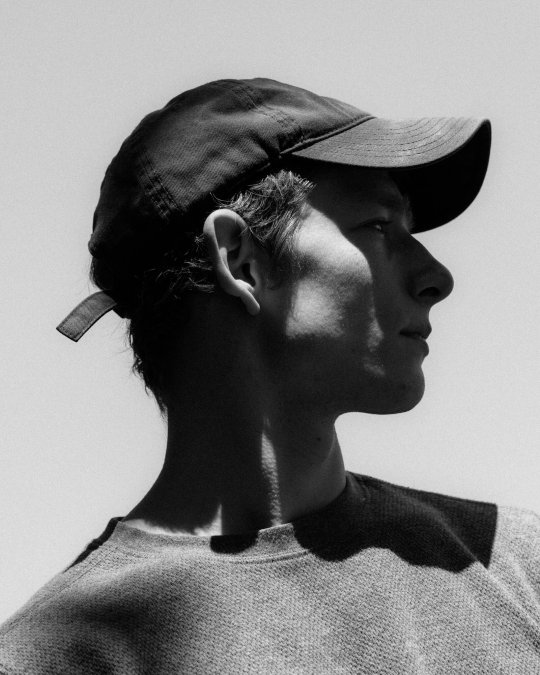
11 notes
·
View notes
Note
If the pandemic and shutdowns hadn't happened, do you think Six would still be at the Arts in London?
I think moving on from the Arts was a smart choice. But I don’t know all the ins and outs of the West End and how changing theaters might work like I know that with Broadway.
If they had had an opportunity to switch, I wouldn’t have been surprised if they did. Choosing the right theater is a big deal for a show. How big or how small a theater is, its’ location, the experience of going to it, can all affect feel or vibe. The size affects how far away audiences might be away from the stage, which affects how designers and creatives design and plan different parts of the show. And the larger the theater the more seats you can fill and the more revenue you can make, but you have to make sure that you can consistently fill up that theater and that it doesn't overwhelm the show (how many seats are filled at every show is a big deal for optics and audience experience!). But those bigger theaters can also be much more expensive to run. The biggest theaters tend to show the biggest, most successful, spectacle-based shows with huge casts that won’t get lost (Wicked is a perfect example of that, and currently plays at both the largest West End theater and the largest Broadway). Medium-sized theaters often host smaller musicals, ones that either need a more intimate feel to be successful OR ones that won't sell as many tickets. The smallest theaters generally only host plays, and often only for very limited runs; the audiences are generally much smaller and a more intimate feel benefits most (but not all) plays in the modern day. The West End does differ a bit from Broadway in some of this, but it’s mostly fairly similar; one of the biggest differences of that they'll still have some musicals at some of their smallest theaters (that really does not happen with Broadway). Some of that comes down to theater ownership, but that’s beyond the scope of this post.
The Arts is the smallest West End theater and only seats 350. It generally tends to show smaller shows for shorter runs (a few weeks, a few months at most). It generally is used more for plays, although they do do short runs of some specific newer musicals. It was a great fit for Six in 2018, when they stopped there from Aug 30 - Oct 14 as part of the 1st UK Tour. The show was still very new, still a little scrappy but buzzy and empowering, and at that point in time it worked in a smaller venue. It did so well there that they decided to have it back in Jan 2019. That was initially just announced as an extended “sit-down” tour stop and that they’d then continue to tour after (yes, that sounds contradictory, but some touring productions do do extended stops, like Aragon Tour in Chicago, that they sometimes bill as a “sit-down” stop; I'm expecting the same from the "Canadian production"). I can’t remember/couldn’t find how long that 2019 stop was initially announced for, but by the time it actually opened in Jan 2019 it had already been extended to mid-September and then again to mid-October, which eventually became their cast change. But of course, the rest is history and Six has been on the West End ever since.
The Arts also has a smaller backstage area. That means smaller dressing rooms and just not as much space as many other theaters have. It’s also not owned by any of the big theater operators, and as a result it may not have the same technical capacity that many other West End theaters have. That can heavily affect what lighting, sets, and sound can look like for any given show.
All that to say, the Arts really isn’t intended to house a huge show like Six long-term! If Six was always expected to become this huge commercial show like they are now, I doubt they would have started their 2019 run there in the first place. For comparison, Six is currently in the Vaudeville, which seats 690. They were also temporarily in the Lyric, which seats 915. For comparison, the Palladium is the West End's biggest theater, with 2,286 seats (it only runs very short term productions). I did see quite a few critiques when Six moved to the Lyric from the Arts that it felt way too big and not as intimate; I didn’t see it in either spot so I can’t personally speak to that, but that wouldn’t be surprising (although worth noting that some of that may just be that the massive size shift was startling to long time fans who were used to the Arts, rather than actually bad).
Obviously I don’t have access to all of the internal records but to me the Vaudeville seems like a good fit. It’s about twice as big as the Arts, and that lets them sell about twice as many tickets. They’re having absolutely no issue with that either - Six is always sold out or nearly sold out under normal conditions; right now, it’s entirely sold out through mid-April. That helps them bring in quite a bit more revenue, and some of the costume updates we’ve seen in recent years are going to be because of that increased budget (there’s a reason alts got principal costumes for first covers not long after the Vaudeville and Lyric runs started). It’s also plenty big enough for all the necessary dressing rooms, hmu, wigs, etc, and with enough room to spare for them to also host incoming cast members at a full cast change seemingly pretty comfortably. But despite the larger size, the Vaudeville is small enough that it will still feel fairly intimate and the (really fairly small) show/cast won’t get lost.
So….considering how popular Six is and the general function of the Arts Theatre, I think they would have made a move at some point. It was definitely in their best interest business-wise to do so. As for if there are any specific rules about switching West End theaters and dictating when/how they could have done that, I don’t know.
And with all that talk of comparing different theater experiences....for people who have seen Six in multiple theaters (WE, Bway, Aus, NCL, tours, or a combo), which was your favorite? How did where you sit affect your experience? How did the size of the theater overall?
22 notes
·
View notes
Text
New episode! Script below the break
Hello and welcome back to the Rewatch Rewind, the podcast where I count down my top 40 most rewatched movies. My name is Jane, and today I will be talking about #35 on my list: Miramax, Producer’s Circle, and Storyline Entertainment’s 2002 crime musical Chicago, directed by Rob Marshall, written by Bill Condon – from the stage musical book by Bob Fosse and Fred Ebb, which was based on a play by Maurine Dallas Watkins – and starring Renée Zellweger, Catherine Zeta-Jones, and Richard Gere.
Set in the Roaring 1920s, Chicago tells the story of wannabe star Roxie Hart (Renée Zellweger), who shoots and kills her lover Fred Casely (Dominic West) when she finds out he has lied to her about his show business connections. In jail, Roxie encounters the famous Velma Kelly (Catherine Zeta-Jones), who “allegedly” murdered her husband and sister when she found them having an affair. Both plan to be represented by lawyer Billy Flynn (Richard Gere), whose strategy involves turning criminals into celebrities so they’ll be acquitted, which leads Roxie and Velma to compete for the spotlight.
I think this was either the first or second PG-13 movie I ever saw. My mom took me to see it in a theater in early 2003, a couple of months before I turned 13, which was kind of surprising because my parents were pretty strict about what I was allowed to see. I don’t actually remember why she agreed to take me to see it. What I do recall is that one of my best friends at the time was obsessed with this movie, so I’d already listened to the soundtrack multiple times at her house, although we mostly just listened to Cell Block Tango on repeat, so I thought the movie was going to be about those 6 murderers, and was surprised to learn that five of them are barely in the rest of it. I remember really liking the song, and also feeling slightly rebellious listening to it because it had the word “ass” in it (although we usually quickly turned the volume on the CD player way down at that part – we weren’t that rebellious). The movie was a lot more raunchy than I was used to, which made me a bit uncomfortable, but overall I liked it. There were several things about it that fascinated me, so I kept returning to it. I ended up seeing it twice in 2003, twice in 2004, three times in 2005, once in 2006, twice in 2009, once in 2011, once in 2014, once in 2018, once in 2021, and once in 2022. If I recall correctly, we had it on VHS, but then our VCR broke with the tape inside, so we didn’t have it for a while, and then we bought a DVD copy later, so I think that explains the gap between 2006 and 2009, but I could be mis-remembering.
I’ve never seen the stage musical, but I absolutely love the way the movie handles the songs. Apart from a few actual performances, the musical numbers mainly exist in Roxie’s imagination. She wants to be on the stage so badly that she turns everything that happens to her into a production. The editing between drab reality and glamorous fiction is so well done and makes for a fascinating watch. I’m sure the stage version is great – I mean, the revival has been on Broadway since 1996, making it the second longest-running Broadway show of all time – but I know that practically, a stage show could not switch back and forth that quickly. Often when plays are adapted to the screen, the movie still feels a lot like a stage show, just with closeups and maybe a few extra locations. Not that there’s anything wrong with that, but I love it when the screen adaptation adds things that couldn’t be done live, and Chicago is one of my favorite examples of that. The way the Cell Block Tango keeps switching between jail life and intense dancing; the way the press conference turns into a marionette show and back again in We Both Reached for the Gun; the way Billy’s dance moves in All I Care About Is Love flawlessly transition into his actual actions as he proves the song completely wrong – all of these and more are amazing and could only be done on screen. So if I had to point to one single reason why I keep rewatching this movie, it’s definitely the editing of the musical numbers.
A close second is the performances. Big movie musicals have a strange tendency to feature famous movie stars who can’t actually sing very well. Back in the day, they got around this by dubbing the singing…and then often not giving the actual singers credit, although the truth usually came out eventually – I see you Marni Nixon! More recently, they just, kind of…let the actors sing badly. But in the early 2000s there was a brief period when Hollywood made musicals featuring stars who weren’t necessarily particularly known for singing but still could actually sing, and thank goodness that happened here. The singing is excellent, the dancing is awesome, and the acting is phenomenal. Four of the actors: Renée Zellweger, Catherine Zeta-Jones, Queen Latifah – who plays “Mama” Morton, the matron of the jail – and John C. Reilly – who plays Roxie’s simple, devoted husband, Amos – were nominated for Oscars. Only Zeta-Jones won, and I mean, I think they all did a fabulous job, but if only one could win, it would have been wrong if it wasn’t her. She perfectly conveys Velma’s strength and confidence with just the right hints of vulnerability to truly make the character work. But that’s not to say that other performances weren’t deserving of recognition as well. Renée Zellweger does an awesome job of differentiating between the real Roxie fumbling around trying to figure out how to handle reality and the confident performer she is in her imagination. And while I normally don’t like movies about people who hate each other, Zeta-Jones and Zellweger make Velma and Roxie’s fighting fun to watch. Similarly, Billy Flynn is a fairly despicable character, but Richard Gere is also very fun to watch. Queen Latifah nails Mama Morton’s corruption while still keeping her likeable. John C. Reilly’s Amos is exactly as pitiful as he should be. And the rest of the supporting cast is incredible as well – shout out to Taye Diggs as the Bandleader, all the ridiculously talented dancers, and of course the always fabulous Christine Baranski, who is an absolute delight as Mary Sunshine the reporter. Truly an excellent cast, and, appropriately for a movie about murder, they all killed it.
Chicago was nominated for a total of 13 Oscars, winning six. In addition to Catherine Zeta-Jones’s supporting actress win, it also won Best Picture, Editing, Art Direction, Costume Design, and Sound. I’m especially glad the editing was recognized, and the art direction, costume design, and sound work together with the editing to create that reality vs imagination effect, so I also think those were award-worthy. And my 2011 viewing of this movie was part of my watch-through of all the Best Picture winners. Around that time I recall stumbling upon a list that someone had made of the most undeserving Best Picture wins, and I can’t even remember if it was from some sort of official film critic publication or if it was just some random person on the internet, but it put Chicago at #1, which irritated me so much that I’m still annoyed about it 12 years later. I mean, it is probably true that, like many Miramax films from that era, Chicago won more Oscars than it would have without the campaigning of executive producer and now convicted criminal Harvey Weinstein, which is upsetting. But there are some Best Picture Winners that I found to be barely watchable, and I cannot believe that they deserved the Oscar more than this engrossing, well-told story. So to whoever made that list: you’re wrong.
If you’ve listened to my previous episodes, you may have noticed that when I talk about being aroace, I tend to focus more on the aromantic side of that than the asexual side. That’s mostly because romantic content – at least, straight romantic content – is considered appropriate for all audiences while sexual content is not, so romance is a lot harder to avoid. In general, if you stick to movies made during the Hays Code era from the mid-1930s through the mid-1960s, and movies made after that which are rated G or PG, there might be some innuendo or implied sexual behavior taking place offscreen, but there’s not going to be any actual sexual content, whereas there probably will be romantic content. And since sex and romance are often related, movies that have sexual content are almost certain to also have romantic content. Chicago is rather unusual in that it has sex but very little romance. Roxie uses sex to get what she wants – or at least, she tries to, it doesn’t really work out most of the time – but we never really see her, or any other character, falling in love. Most of the musical numbers feature rather provocative dances in revealing costumes, which isn’t exactly explicit sexual content, but I think could be described as “sexy.” One of the ways I figured out I was asexual was by realizing that I don’t quite understand what words like “provocative” or “sexy” really mean. Like, I kind of get what fits those descriptions, but do people actually see someone of a gender they’re attracted to scantily clad and dancing in a certain way and actually want to sleep with them because of it? Is that a thing? Before I understood that I was asexual, I kind of thought everyone was just going along with the idea of what made someone “hot” or “attractive,” and I still find it hard to wrap my head around the concept of actually feeling that attraction. So I guess the dances in Chicago are meant to turn people on, but ultimately they’re just performers doing their routine. And the main sex scene in the movie, when Roxie hooks up with Fred for the first time, is intercut with Velma’s performance of And All That Jazz right after she killed her husband and sister. Roxie is only sleeping with Fred because she thinks he can help her get into show business, which he lied about to get her into bed, so they’re both putting on an act, just like Velma is – both onstage and in her real life by pretending she hasn’t just committed a double homicide. The whole movie is about obscuring the truth with facades and performances, and the sex is very much a part of that. So as an asexual person, I find Chicago to be one of the least confusing movies that contain sexual content, because the sex and sexiness is intentionally contrived. Since I don’t experience it myself, to a certain extent, sexual attraction has always seemed fake to me. In this movie, it’s supposed to seem fake. In short, a probably unintended side effect of the themes of this movie is that Chicago portrays sex as performative in a way that is consistent with my asexual brain’s inability to comprehend sexual attraction, so that might explain why I enjoy it more than most movies that contain sexual content.
One last aspect of this movie I want to highlight is that it points out some of the glaring flaws in the US legal system. I know it’s specifically about 1920s Chicago, which was notoriously corrupt, but anyone who thinks that justice is blind anywhere in 2020s America must be living under a rock. Chicago straight up says, “It doesn’t matter if you’re guilty or innocent, it matters how much money you have, what you look like, and how the public perceives you.” Admittedly it doesn’t really address the problem of racism, but the only prisoner who seems to be innocent is a Hungarian immigrant who speaks very little English, and she’s the only one we know of who gets executed. It’s both a compelling argument for abolishing the death penalty – far too many innocent people are killed by the state – and a demonstration of why it’s not being abolished – the wrongfully executed tend to be people our society deems “less than.” This message kind of gets buried by the main story, and I feel like it’s easier to miss than it should be, but I appreciate that it’s there. And while it’s painful and upsetting to see that very little has changed in 100 years, in a way this movie can now serve as a reminder that at least occasionally, powerful and famous people who commit heinous crimes do get convicted and sent to prison.
Well, this episode got a little spicy. Thank you so much for listening. Subscribe or follow for more analysis of my most re-watched movies, and leave a rating or review to let me know how you’ve been enjoying it so far. The next episode will be about the final and longest movie I watched 15 times in 20 years, which is another Best Picture Winning musical. By the way, if you like musicals and learning about them, I highly recommend supporting Ashley Clements’s Patreon at the $15 level for episodes of her Patreon-exclusive show Broadway: Before & Beyond. This is not a sponsorship or anything, just a genuine recommendation. Every month, she posts an episode focusing on a specific era or year or particularly impactful show, and I’ve been learning so much about the history of musical theater. There’s also a monthly watch party related to that month’s episode, and my 2022 viewing of Chicago was one of those, so Ashley is partly to thank for this movie making it into my top 40. Anyway, my next episode will feature The Rewatch Rewind’s first ever guest appearance, and the guest is not Ashley Clements, but the guest is a fellow Ashley Clements patron. So stay tuned for that next week, and as always I will leave you with a quote from the next movie: “The poor didn’t want this one.”
7 notes
·
View notes
Photo





i finally found an epub of the script for Matthew Lopez’s The Inheritance!! i saw it on broadway last november and it made me sob uncontrollably, i highly recommend any maurice fans give it a read as it is a beautiful love letter to em forster’s legacy. while its based off howard’s end, it also has so many references to maurice as well as his other works, and perfectly upholds the continued relevance of forster’s works as a queer author :’-)
#the first two are from separate scenes and then the last three are consecutive just to clarify#i didnt wanna spoil anything in case anyone actually wants to read#if u want the link send me an ask or a message or reply to this post and ill drop it!!!#this is the first time ive actually read it as opposed to seeing it performed#and its definitely different but im so glad i found it#i started like two hours ago and am already halfway done#its such a precious work and kind of converts all the modern love and appreciation for forsters works and legacy into a piece of art#also as a young queer person living in new york city its very <3#it also played in the west end in 2018 first then moved to broadway#was v popular in the uk i think#obviously opening right before covid was.... not great#but its so so so good#and i would LOVE to talk about it w the maurice community on here :))#maurice#maurice 1987#em forster#matthew lopez#the inheritance
50 notes
·
View notes
Text
Timothée Chalamet and Eileen Atkins Interview - British Vogue May 2020

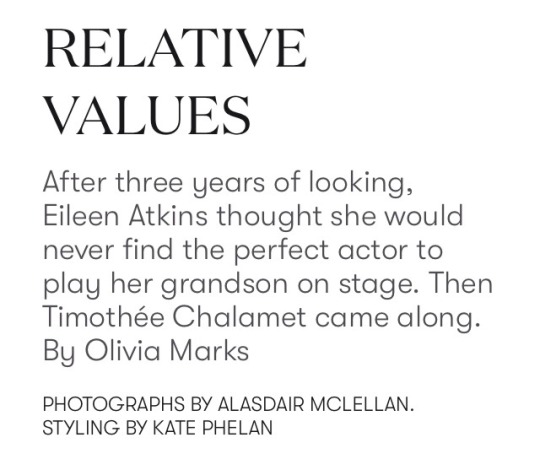
“Maybe your knuckles weren’t bleeding, but there was ice,” Timothée Chalamet tells Dame Eileen Atkins. He is recounting, with no small amount of awe, how he first came to hear of the legendary 85-year-old actor with whom he is about to appear at The Old Vic. It transpires that Oscar Isaac, Chalamet’s co-star in the upcoming blockbuster Dune, was at the receiving end of Atkins’ fist in Ridley Scott’s Robin Hood (all in the name of acting, of course). Chalamet was duly impressed.
“I gave him the worst time of his life,” says Atkins, bristling at the memory, before merrily launching into several candid, very dame-like stories from her time on set – “That was a nightmare movie. A nightmare.”
It is a Saturday afternoon in late February, and the two actors – one a titan of British theatre with an eight-decade career; the other, Hollywood’s most in-demand young leading man, with an insatiable Instagram following – have just finished being photographed together for Vogue. Chalamet, 24, in louche, low-slung denim and a white T-shirt, has folded his Bambi limbs into a chair next to Atkins, whose hawkish frame, in a navy jumper and jeans, belies her 85 years.
“Do you like being called Tim or Timothée or what?” Atkins asks in her warm but brisk RP, all trace of her Tottenham upbringing erased.
“Whatever works,” he replies in a bright American accent, that shock of chestnut hair falling into his eyes. “Anything.”
“So you won’t object to ‘darling’? I call everyone darling. I’m told I mustn’t say it these days.” He assures her he is fine with it: “It’s a rite of passage, being called darling by Dame Eileen Atkins.”
“You always, always, have to put the dame in, otherwise you can’t address me,” she jokes.
It’s good the two are getting all this sorted now. A couple of days after our interview they will begin rehearsals for a seven-week run of Amy Herzog’s play 4000 Miles, in which they star as a grandmother and grandson, each quietly dealing with their own grief. Chalamet takes on the role of Leo Joseph-Connell, a somewhat lost 21-year-old who experiences a tragedy while on a 4,000-mile-long cycle ride with his best friend. Atkins plays Vera Joseph, his widowed 91-year-old grandmother, upon whose Manhattan doorstep Leo unexpectedly arrives in the middle of the night, unsure of where else to go. What follows is a wonderful, and wonderfully witty, study in human relationships, a portrait of two generations with decades between them trying to make sense of the world.
Its stars, who’ve met twice previously, in New York last year, are still very much getting to know each other – and are confident in the appeal. “There are things like this play – hoping I don’t butcher it – where you can just sit back and go, ‘Oh, this is a delicious meal,’” says Chalamet. Atkins agrees. “I have a phrase in mind that I shouldn’t really say because it’s going to sound terrible in print.” Which is? “I find it a dear little play, a really dear little play. I think it should be very moving. But who knows? We might f**k it up.”
It’s unlikely. Atkins has been a regular on The Old Vic’s stage since the 1960s, going toe-to-toe with greats from Laurence Olivier to Alec Guinness, and fellow dames (and close friends) Maggie Smith and Judi Dench. Chalamet, meanwhile, is a relative novice, with only two professional plays under his belt. But since his turn as Elio in 2017’s Call Me by Your Name (for which he was Oscar-nominated), his celluloid rise has been meteoric. Roles in Lady Bird, Little Women, The King and Wes Anderson’s upcoming The French Dispatch have not only earned him the slightly fraught badge of “heart-throb”, but proved him to be among the most captivating actors of his generation.

He says he couldn’t resist the opportunity to come to the capital. “There was something exciting about doing a play that feels very New York in London,” Chalamet explains of taking on the part. He’s a diehard theatre fan, too, revealing he saw the six-and-a-half-hour epic The Inheritance – twice. “There are films like The Dark Knight or Punch-Drunk Love or Parasite that can give you a special feeling. But nothing will be like seeing Death of a Salesman on Broadway with Philip Seymour Hoffman or A Raisin in the Sun with Denzel Washington.”
Herzog’s writing particularly spoke to him. “Leo’s in a stasis that was very appealing to me,” he continues. “We find our crisis in moments of stasis, but there’s an irony to it when you’re young, because the law of the land would have you think that to be young is to be having fun, to be coming into your own. But as everyone at this age who’s going through it knows, it’s often a shitshow.”
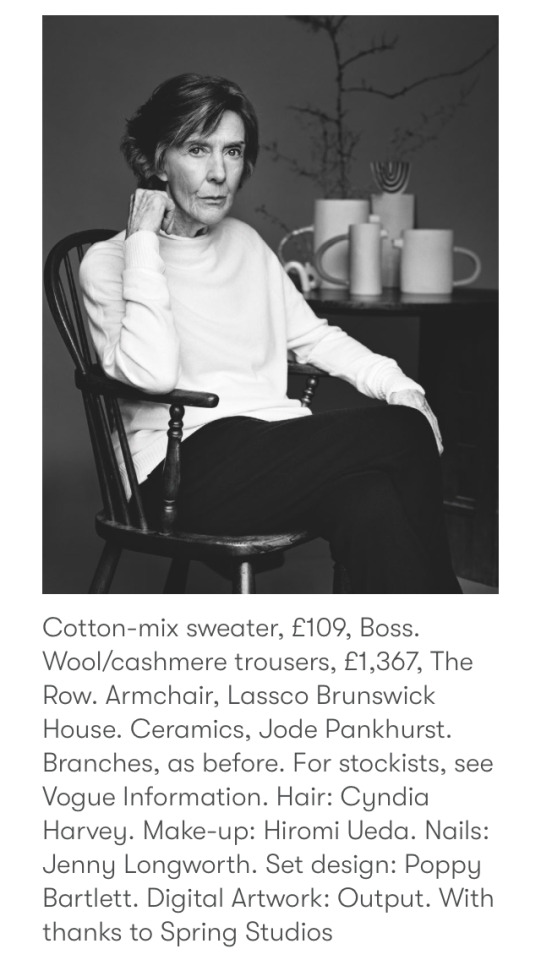
It’s safe to say that, in casting terms, director Matthew Warchus, also artistic director of The Old Vic, has hit the jackpot. He first took the play to Atkins three years ago, but it was only towards the end of 2019 that Chalamet came on board. When it was announced, in December, that Hollywood’s heir apparent to Leonardo DiCaprio would be making his London stage debut, the news was met with a level of hysteria not usually associated with the 202-year-old theatre’s crowd.
“Oh, my friends have told me who the audience is,” Atkins chimes in when I ask who they think will be coming to see the show. “It’s 40 per cent girls who want to go to bed with Timothée, it’s 40 per cent men who want to go to bed with Timothée, and it’s 20 per cent my old faithfuls.” Is Chalamet prepared for the onslaught? “I think it will be 100 per cent Eileen’s faithfuls,��� he demurs.
On the surface, they can seem quite the odd couple. Chalamet, raised in Manhattan by an American dancer-turned-realtor mother and French father, an in-house editor at the United Nations, may be living a breathless, nomadic movie-star life but there’s an iron core of Gen Z earnestness there. He arrives on set with minimal fuss, even deciding to wear the clothes he came in for one shot, before knocking out some push-ups, politely ordering an omelette and generally being divinely well-mannered.
He turns on the star power for the camera, though, and I can confirm it’s as dazzling up close as it is on the red carpet, where he has, famously, casually redrawn the rules for male dressing. From that Louis Vuitton sparkly bib at the 2018 Golden Globes, to a dove-grey satin Haider Ackermann tux at Venice last year, he’s a true fashion darling. Then, of course, there’s his dating life – from Lourdes Ciccone Leon to Lily-Rose Depp – that remains an endless source of fascination to millions worldwide. (All this, it must be said, is of significantly less interest to Dame Eileen.)
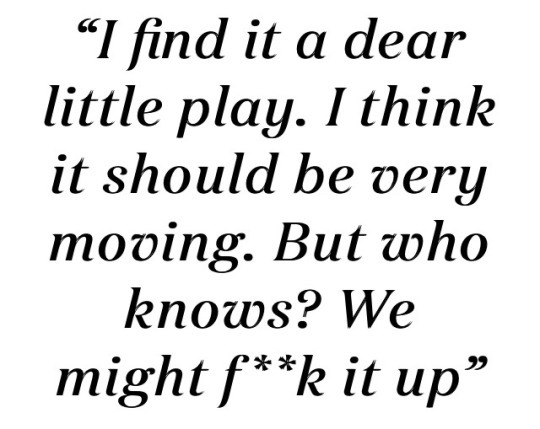
Atkins started dance lessons aged three, shortly before the start of the Second World War. By 12, she was performing professionally in pantomime, not far from where she grew up in north London, the youngest daughter in a working-class family. A fast-established theatre star, wider fame didn’t find her until late in life. Despite memorable turns in Upstairs, Downstairs and Gosford Park, it was the 2000 television hits Cranford and Doc Martin, when she was in her early seventies, that finally made her a household name. Today, she lives alone in west London, since her second husband, the TV and film producer Bill Shepherd, died in 2016. She has often spoken of being happily childless, and has zero time for razzmatazz.
And yet, despite their differences, the pair appear perfectly matched. They already have their grandmother-grandson dynamic down pat. Atkins does a fine line in mischievous eyebrow-raising, and at one point recites a limerick that is, honestly, so rude it almost makes her co-star blush. Chalamet, meanwhile, is politeness personified, still trying to work out his thoughts on various subjects, less inclined to give so much of himself away. There is a physical likeness, too, in their delicate features and fine bone structure. They share a naturally melancholic look, one that melts away when they laugh.
Their upcoming play, which premiered to rapturous reviews Off-Broadway in 2011, “about a block” from Chalamet’s high school, LaGuardia, could have been written for them. “Other than not being American, I’m very like the old woman,” says Atkins of the Pulitzer-shortlisted play. “I can’t be bothered to learn the internet.” If there’s one thing she won’t tolerate in rehearsals, it’s people on their phones. That’s the only thing that will “piss me off ”, she says, brusquely.
Ah, phones. Are they really the symbol of generational disconnect? “It’s easy to point to these things,” Chalamet says, tapping his phone on the table, “as the cause or the symptom, but I think my generation is a guinea pig generation of sorts. We’re figuring out the pros and cons and limits of technology.”
Equally, Atkins is keen to distance herself from some of the criticism levelled at her age group. “There’s a saying isn’t there: if you’re not very left wing when you’re young, you’re heartless. And if you’re not very right wing when you’re old, you’re foolish. I’m not political, but I’m not with this government I can assure you – and I’m not with Brexit. I wanted to wear a sweater saying ‘I did not vote Brexit’, because it was all old people who did. Not me, not me,” she snaps. “I went on the march.”
Both are in agreement that intergenerational friendships are too rare these days. “So. Important,” Chalamet says, hitting the table between each word. “There is so much to learn from people who have walked the path of life. That’s why I’m so looking forward to these next couple of months.”
Atkins is thoughtful on the matter. “I don’t miss the fact I don’t have children, but I do envy my friends who have grandchildren,” she says. “About five or six years ago I met a couple of young people – they are just about 30 this year – and, do you know, we go out together. And people immediately say to me, ‘Are these your grandchildren?’ And I say, ‘No.’ And they say, ‘Your godchildren?’ And I say, ‘No, they’re just friends.’ Everybody thinks there is something weird about all three of us. They just don’t get it. But the boy makes me laugh more than anybody and the girl is enchanting. I have more fun with them than I do with almost anybody else.”
I remind Atkins about her description of today’s youth as being overly serious. “I do call them the New Puritans, yes,” she says, before motioning to her young co-star. “He probably drinks like a fish.”
Chalamet, currently single, is remaining tight-lipped about plans for his new London life, and how many late-night manoeuvres in Soho or Peckham it may involve. “I’ve got friends here, which is nice. But I’m here for this – to be terrified at The Old Vic.”
Before we leave, there is a final thing to clear up – Atkins’ aforementioned limerick. “Do you know about the Colin Farrell situation?” Eileen asks Timothée. No, comes his reply. “Better get it over with now because someone will tell you,” she says, proceeding to explain how, when she was “69, about to be 70” and filming Ask the Dust with a 27-year-old Farrell, “he made a pass at me. He came to my hotel room. He was enchanting. I let him chat for two hours, thoroughly enjoying it, but no not that. He was very cross I didn’t.”
But then, she explains guiltily, she later told the story during “some stupid TV show” (Loose Women), where despite her best efforts at keeping Farrell’s identity secret, the internet did its thing and news got out. An apology to Farrell was required. “So I left a limerick on Colin’s phone…” she says. She clears her throat: “There once was a **** of a dame…” she begins, in her imitable theatrical timbre, before reeling off one of the filthiest rhymes I’ve ever heard.
There is a moment of stunned laughter. “Wow, that’s sincerely amazing,” comes Chalamet’s response, as Atkins finishes the verse. He gives her a solemn oath: “I promise I won’t hit on you.”
4000 Miles is at The Old Vic, SE1, from 6 April
276 notes
·
View notes
Link
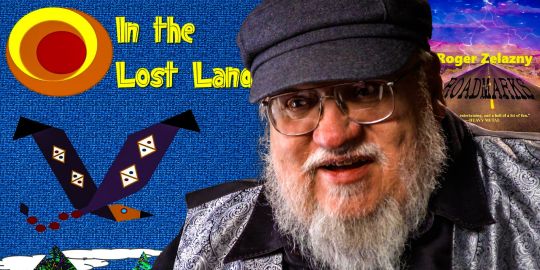
George R.R. Martin might be busy finishing up The Winds of Winter, but the Game of Thrones creator has various other projects in the works. The prolific author is the brilliant mind behind the A Song of Ice and Fire series, which became the basis of one of the most acclaimed TV series in history. The title was such a success for HBO during its eight-season run that the network has strengthened the partnership with Martin in the hopes of developing equally as popular content.
While Martin's name will always be linked to Game of Thrones, he's also written or edited dozens of stories since his professional career started in the early '70s. In 1984, the author tried his hand in the entertainment industry, serving as a writer on the horror anthology series The Hitchhiker. After working on an episode of The Twilight Zone, Martin expanded his career even further, becoming a producer on the CBS series Beauty and the Beast. He also executive produced the TV adaptation of his sci-fi novella Nightflyers in 2018 after it was made into a move in 1987.
Related: Game Of Thrones: Why George R.R. Martin Stopped Writing Episodes After Season 4
Since Game of Thrones came to an end in 2019, longtime fans of the series remained hopeful at the fact that Martin's A Song of Ice and Fire series was still ongoing. Coincidentally, the HBO series bypassed the source material despite the author's promises that The Winds of Winter would be out by now. The sixth installment of the book series has been in development for over a decade, and once that comes out, work will need to get started on the presumed final novel, A Dream of Spring. The waits for those publishing dates could be delayed even longer considering the number of other projects Martin is working on, specifically for TV.
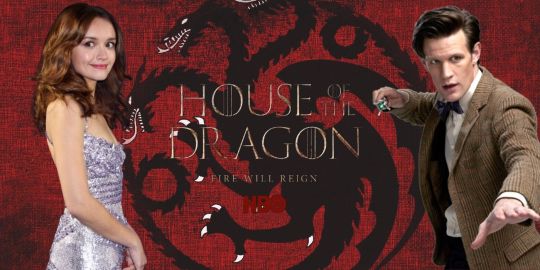
Out of all the Game of Thrones spinoffs in the works, House of the Dragon is the furthest along in development. The series, set to debut on HBO Max in 2022, serves as a prequel, documenting the beginning of the end for House Targaryen's reign. Starring Paddy Considine, Olivia Cooke, Matt Smith, and Emma D'Arcy, House of the Dragon is based on content from Martin's Fire and Blood novel. The author currently serves as an executive producer on the series as part of his five-year partnership deal with HBO and HBO Max, worth somewhere in the mid-eight figures range.

Another series in development set within Martin's fictional Game of Thrones' world is Tales of Dunk and Egg. The prequel novella from Martin's A Song of Ice and Fire series follows the future Lord Commander of the Kingsguard, Ser Duncan the Tall, aka "Dunk," and the future king, Aegon V Targaryen, better known as "Egg" for his egg-shaped head. Set nearly a century before the events of the first Game of Thrones novel, HBO announced plans to adapt the Tales of Dunk and Egg short stories with the help of Martin.
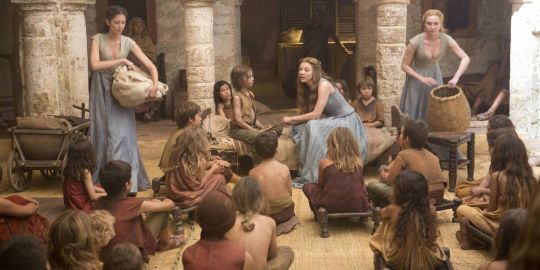
In addition to House of the Dragon and the Tales of Dunk and Egg series, Martin is involved in creating four other Game of Thrones-related projects for HBO and HBO Max. As for the latter, the WarnerMedia streaming service is considering an animated Game of Thrones series. So far, there are no details announced regarding the plot's focus or news on the potential creative team. As for the other ideas being mulled at HBO, the first is Bruno Heller's 9 Voyages, a tale centered on seamen Corlys Velaryon's journeys on the Sea Snake. Then there's 10,000 ships, a show about the voyages taken by Princess Nymeria before she found Dorne. Last but not least, a show set in Flea Botton is reportedly in the works. The slum of King's Landing was memorably featured in multiple seasons of Game of Thrones. Martin is expected to be involved in all the above-mentioned projects as part of his HBO content creation deal.
Related: Why So Many Franchises Are Getting Animated Spinoff Shows
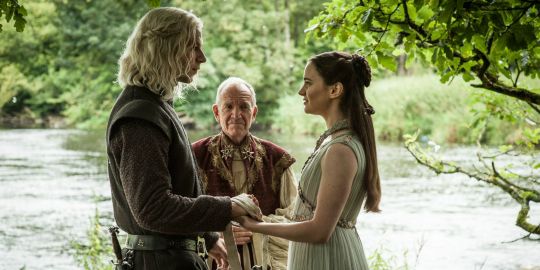
If six Game of Thrones spinoff projects wasn't enough, Martin is currently developing a Broadway play based on the live-action adaptation of his A Song of Ice and Fire series. Unlike the aforementioned projects, the dramatic stage production will feature notable characters from the original TV series. More specifically, it will center on The Great Tourney at Harrenhal, a key moment in Westeros' history that took place 16 years before the show's events. Noted as the biggest tournament in Westeros' history, the Great Tourney of Harrenhal featured appearances by Ned Stark, Rhaegar Targaryen, Howland Reed, Lyanna Stark, Jaime Lannister, and Robert Baratheon. Shortly after the events, Rhaegar was presumed to have abducted Lyanna, but it was later confirmed the pair eloped. Martin is writing the play's story alongside playwright Duncan MacMillan. In addition to Broadway, the play stage production is expected to debut in London's West End and Australia, with a launch planned for 2023.

Aside from various Game of Thrones-related projects, Martin is involved in other titles outside of the Westeros realm. One of which is an HBO adaptation of Who Fears Death, a 2010 sci-fi fantasy novel by author Nnedi Okorafor. The story is set in the post-apocalyptic Sudan, where a young woman named Onyesowu goes on a journey of self-discovery. A TV series based on the novel has been in development since 2017, with Martin on board to executive produce. In early 2021, it was announced Tessa Thompson's new production company, Viva Maude, is backing Who Fears Death as part of the actress's deal with HBO and HBO Max. There's no word yet on who will star in the series.
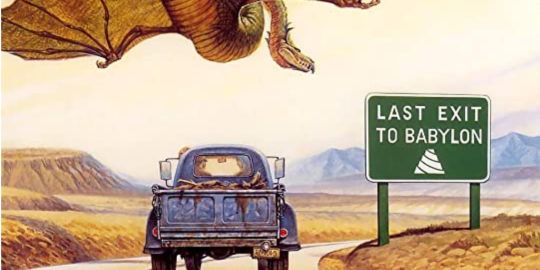
In 2021, it was also announced Martin is heavily involved in bringing Roger Zelazny's sci-fi novel Roadmarks to the small screen. In fact, Martin is working with TV writer/director Kalinda Vazquez to develop the project for HBO. Published in 1979, Roadmarks centers on a highway that can travel through time. The certain exits on the highway lead to different moments in history, allowing people to rewrite the timeline. Game of Thrones fans will also be happy to hear the possibility of dragons returning to the network with Roadmarks. Martin previously helped adapt Zelazny's Last Defender of Camelot for The Twilight Zone in the mid-'80s.
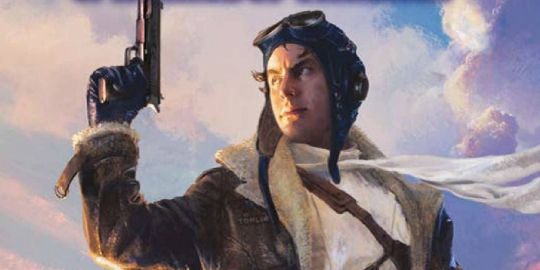
Not all of Martin's upcoming TV projects will be set for HBO or HBO Max, considering the recent updates surrounding the Wild Cards adaptation. Consisting of books and short series, Wild Cards is set in a shared superhero universe during an alternate timeline following WWII. Specifically, the stories center on humans infected with an alien virus that can rewrite DNA, with some gaining superhuman abilities and others acquiring crippling conditions. Martin served as an editor on the series that included more than 40 authors. Originally set for Hulu with Martin producing, the TV adaptation has recently found a new home on Peacock.
Related: The Three Most Shocking Game of Thrones Spoilers GRRM Told Showrunners

In the Lost Lands marks the only source material intended for a feature film with Martin involved. Confirmed in early 2021, Martin's fantasy short story from 1982 will be brought to life on the big screen with Paul W.S. Anderson set to direct. The story follows a sorceress, Gray Alys, who is guided by a drifter named Boyce after being hired for a special journey. Milla Jovovich has signed on to play Alys, while Dave Bautista is set to portray Boyce in the film, which will feature the duo facing off with demons. There has been no announcement regarding a release date for this particular Martin project.
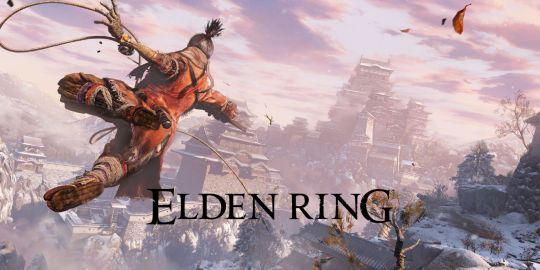
To cover all bases, Martin will also see his name attached to a video game in the near future with the release of Elden Ring. The action role-playing game is coming from the same studio that produced Dark Souls, Bloodborne, and Sekiro: Shadows Die Twice. Director Hidetaka Miyazaki is creating the dark fantasy game in collaboration with George R.R. Martin. Despite being in development since 2017, there's still no release date for the title set to release on Microsoft Windows, PlayStation 4, and Xbox One.
More: George R.R. Martin’s Original Game Of Thrones Plan (& Why It Changed)
Every Upcoming George R.R. Martin Project (Besides Winds Of Winter) from https://ift.tt/2Pv7z5u
2 notes
·
View notes
Text
* mona lisa saperstein vc * i’m so friggin excited right now , i could crap my pants ! hi y’all ya girl mae ( 21+ + she / her + est ) is here with her dramatic daughter carina ! she’s the broadway actress you didn’t ask for , yet here she fucking is ! i’m so excited to play her , i’ve never gotten to play her before + my muse is Inspired™ ! you can hit me up for plots here or on discord ! my discord is 𝑑𝑜𝑛'𝑡 𝑏𝑒 𝖘𝖚𝖘𝖕𝖎𝖈𝖎𝖔𝖚𝖘#4904 ( can u tell i love mona lisa + parks and recs ? cause i do ) hit that little heart button so i can annoy your cute ass , okie ? thankssssssss !!

new york’s very own 𝒄𝒂𝒓𝒊𝒏𝒂 𝒋𝒂𝒄𝒊𝒏𝒕𝒐 was spotted on broadway street in 𝒸𝒽𝓁𝑜𝑒́ 𝓈𝓊𝓈𝒶𝓃𝒶 𝒷𝑜𝑜𝓉𝓈 . your resemblance to 𝒔𝒆𝒍𝒆𝒏𝒂 𝒈𝒐𝒎𝒆𝒛 is unreal . according to tmz , you just had your 𝟸𝟺ᵗʰ birthday bash . while living in nyc , you’ve been labeled as being 𝒽𝒾𝓈𝓉𝓇𝒾𝑜𝓃𝒾𝒸 , but also 𝓅𝒶𝓈𝓈𝒾𝑜𝓃𝒶𝓉𝑒 . i guess being a 𝒍𝒆𝒐 explains that . 3 things that would paint a better picture of you would be 𝓈𝓉𝒶𝓃𝒹𝒾𝓃𝑔 𝒸𝑒𝓃𝓉𝑒𝓇 𝓈𝓉𝒶𝑔𝑒 𝒾𝓃 𝓉𝒽𝑒 𝓈𝓅𝑜𝓉𝓁𝒾𝑔𝒽𝓉 , 𝑒𝓂𝓅𝓉𝓎 𝒷𝑜𝓉𝓉𝓁𝑒𝓈 𝑜𝒻 𝑒𝓍𝓅𝑒𝓃𝓈𝒾𝓋𝑒 𝓇𝑒𝒹 𝓌𝒾𝓃𝑒 & 𝓉𝒶𝒸𝑜 𝓉𝓊𝑒𝓈𝒹𝒶𝓎𝓈 𝑜𝓃 𝓉𝓊𝑒𝓈𝒹𝒶𝓎𝓈 𝒶𝓃𝒹 𝓉𝒽𝓊𝓇𝓈𝒹𝒶𝓎𝓈 . ( i was sexually assaulted when i was thirteen by my teacher ) + ( cisfemale + she / her )
𝒕𝒓𝒊𝒈𝒈𝒆𝒓 𝒘𝒂𝒓𝒏𝒊𝒏𝒈 : pedophilia + sexual assault
𝒷𝒶𝓈𝒾𝒸𝓈
𝑓𝑢𝑙𝑙 𝑛𝑎𝑚𝑒 : carina dulce jacinto 𝑛𝑖𝑐𝑘𝑛𝑎𝑚𝑒𝑠 : cari , rinny , cj , jace ( ha - say ) 𝑑𝑎𝑡𝑒 𝑜𝑓 𝑏𝑖𝑟𝑡𝘩 + 𝑎𝑔𝑒 : august 12th , 1996 + 24 𝑎𝑠𝑡��𝑜𝑙𝑜𝑔𝑖𝑐𝑎𝑙 𝑠𝑖𝑔𝑛 : leo 𝑔𝑒𝑛𝑑𝑒𝑟 + 𝑝𝑟𝑜𝑛𝑜𝑢𝑛𝑠 : cisgender female + she / her 𝑠𝑒𝑥𝑢𝑎𝑙 + 𝑟𝑜𝑚𝑎𝑛𝑡𝑖𝑐 𝑜𝑟𝑖𝑒𝑛𝑡𝑎𝑡𝑖𝑜𝑛 : pansexual + panromantic 𝑒𝑡𝘩𝑛𝑖𝑐𝑖𝑡𝑦 : mexican 𝑛𝑎𝑡𝑖𝑜𝑛𝑎𝑙𝑖𝑡𝑦 : american 𝑚𝑜𝑡𝘩𝑒𝑟 + 𝑓𝑎𝑡𝘩𝑒𝑟 : claudia jacinto + mateo trevino 𝑝𝑙𝑎𝑐𝑒 𝑜𝑓 𝑏𝑖𝑟𝑡𝘩 : phoenix , arizona 𝑝𝑙𝑎𝑐𝑒 𝑜𝑓 𝑟𝑒𝑠𝑖𝑑𝑒𝑛𝑐𝑒 : manhattan , new york 𝑜𝑐𝑐𝑢𝑝𝑎𝑡𝑖𝑜𝑛 : eurydice in hadestown on broadway 𝑎𝑐𝑡𝑖𝑛𝑔 / 𝑠𝑖𝑛𝑔𝑖𝑛𝑔 𝑖𝑛𝑠𝑝𝑜 : phillipa soo , taylor louderman , eva noblezada + anna kendrick 𝑙𝑎𝑛𝑔𝑢𝑎𝑔𝑒𝑠 𝑠𝑝𝑜𝑘𝑒𝑛 : english ( primary ) , spanish ( secondary ) , italian + french 𝑓𝑙𝑎𝑡𝑡𝑒𝑟𝑖𝑛𝑔 : passionate , eloquent , captivating , focused , observant , confident , intuitive + witty 𝑢𝑛𝑓𝑙𝑎𝑡𝑡𝑒𝑟𝑖𝑛𝑔 : historic , critical , indulgent , opinionated , mercurial , candid , pretentious + realistic 𝑑𝑟𝑒𝑎𝑚 : to win a tony for best performance by a leading actress in a musical
𝒷𝒶𝒸𝓀𝑔𝓇𝑜𝓊𝓃𝒹
carina was born to a young single mother in phoenix , az
her father high tailed it out of the picture once he found out carina was on the way
carina’s mother had big dreams of becoming a hollywood actress , wanting to
carina’s mother was the one that pushed her daughter into acting , signing her up for local commercials + the likes until she gained some traction as a popular baby/toddler in commercials
after a few years of continuing on with commercials carina finally took a break when it was interfering with school , much to her mother’s dismay
but still carina had the acting bug + wanted to do community theater in her free time
when she wasn’t preparing for play , she’d make one up herself + act it out for her mother if she’d let her , if not she’d just rehearse by herself until she memorized all the lines she wrote
this continued into middle school , where she became “ that girl ” the theater girl
she didn’t mind the label , in fact she took advantage of it + became THE theater girl of her school
the english teacher that was also the theater teacher praised her for her work + they grew to have a very close relationship
he was a father figure that she never had
until he wasn’t
𝒕𝒓𝒊𝒈𝒈𝒆𝒓 𝒘𝒂𝒓𝒏𝒊𝒏𝒈
mr. guzman saw how alone carina was + while for a time he was an authority figure that helped her , he soon became so much more
it started with a ride home after theater practice , the young tween had called her mother to no avail , but she hadn’t picked up + home was a two mile walk . doable , but mr. guzman saw she was in need + offered her a ride
in the car it was really the first time that carina had been alone with mr. guzman in an enclosed space , if they were alone it was usually on the stage
the drive was pleasant , they made small talk + he asked her how eighth grade was going , she was in seventh when she had him as her teacher
when they finally pulled into her driveway she thanked him + started to get out but his hand grabbed a little above her knee + soon it was moving its way up her thigh
only 13 + dubbed as “ the theater girl ” by her peers she never had any romantic or sexual experience , so she froze unsure of what to do or say
that first night it ended with a soft pat on the thigh before she was able to run out the door
but soon the rides were a regular occurrence + his hand didn’t stop at her thigh
after months of this continuing on carina lost her love + passion for theater
𝒆𝒏𝒅 𝒐𝒇 𝒕𝒓𝒊𝒈𝒈𝒆𝒓 𝒘𝒂𝒓𝒏𝒊𝒏𝒈
she quit theater + became a recluse all the way up until junior year of high school
she again�� grew close to a teacher , this time a female teacher , her us government teacher that often brought up difficult subjects for the students to discuss
after hearing + reading about different hard topics , carina finally told mrs. reyes what had happened to her back in middle school
it was the first time that she had ever told anyone what had happened to her + though mrs. reyes pushed , carina didn’t report or tell anyone else
but with mrs. reyes by her side her senior year she got back into theater . falling back in love with the thing that held a lot of emotions for her
after graduation carina was all set to attend nyu with a double major in performing arts as well as film + media production
she moved to new york early , wanting to get a head start on moving in + earning some cash before classes started
while she was working as a barista she overheard director talking about auditions for an off broadway play + this grabbed carina’s attention
she quickly introduced herself + snagged an audition , she landed a feature role
this was the beginning of her broadway career at the mere age of 17 , something she had always dreamed of
her role in the off broadway play took her into the middle of october + in september she was already auditioning for roles in a broadway play while she attended nyu
she soon gained traction , directors were discussing her performances , even minor roles , on broadway
carina still continued to take classes at nyu but her focus had shifted from getting a degree to landing a leading role on broadway
when she was nineteen her dreams came true , she got the lead role as eliza in hamilton
from that role she sky rocketed to fame , she performed for the president , beyonce , oprah , kristin chenoweth , meryl streep + many more
carina was barely able to handle how fast her fame came , she still thought of herself as the small town girl from a working class home with a young single mom
because of how much attention hamilton was receiving , carina had to take a step back from school
she took a leave of absence , vowing that she would be back + while she’s taken some classes here + there she still hasn’t gone back fully due to her continued success on broadway
from 2016 - 2017 she was cast as sonya rostova in natasha , pierre + the great comet of 1812
in 2018 carina became regina george in mean girls
and in 2019 she claimed the role of eurydice in hadestown
new york , specifically the upper west side , has become carina’s home
𝒸𝑜𝓃𝓃𝑒𝒸𝓉𝒾𝑜𝓃𝓈
( 𝒓𝒊𝒅𝒆 𝒐𝒓 𝒅𝒊𝒆 ) once the two met they were inseparable . without siblings carina thinks of them as her own family . she’ll do anything for them + hopefully vice versa !
( 𝒓𝒐𝒐𝒎𝒎𝒂𝒕𝒆 ) the person carina moved in with when she started out in new york . they could still be close or they could not talk at all .
( 𝒕𝒉𝒆 𝒄𝒐𝒓𝒓𝒖𝒑𝒕𝒐𝒓 ) they see carina + they see gullible , gullible , gullible . they’ll do anything to manipulate carina to get something for themselves .
( 𝒕𝒉𝒆𝒂𝒕𝒆𝒓 𝒃𝒖𝒅𝒅𝒊𝒆𝒔 ) anyone that carina has worked with on broadway .
( 𝒅𝒊𝒓𝒆𝒄𝒕𝒐𝒓 ) someone that carina has worked closely with to ensure an honest + authentic performance .
#╰ ˚ ⋆ ◜ 𝒄𝒂𝒓𝒊𝒏𝒂 𝒹 . 𝒋𝒂𝒄𝒊𝒏𝒕𝒐 ╱ 𝒸𝒶𝓉𝒶𝓁𝑜𝑔 𝒶𝓈 › munings . ◞#wealthyhq:intro#this is kinda late but i've been working on resources soooo...#i'm gonna stick to that excuse ;)
24 notes
·
View notes
Link
Zawe Ashton, Charlie Cox, and Tom Hiddleston sit down at a back table of a midtown Italian restaurant and launch into it.
“I don’t know …” “I think I’ll have the …” “Are you getting a starter?” “If you get that, I’ll share it with you.” “Whisky at lunchtime?”
“We’re not doing this on purpose,” Hiddleston assures me, although their staccato rapport bears an uncanny similarity to dialog that Harold Pinter—in whose Betrayal the three are currently starring—might have drafted. “Sometimes, you just find yourself recreating his rhythms.”
I hadn’t actually assumed that there was anything staged about their chatter. It seemed more like the results of months of close collaboration and a natural intimacy. The current Broadway production is a transfer of a West End show from last year; the three actors have been performing together since March, but their association began earlier than that.
Back in October of 2018, Hiddleston and Ashton participated in an Intelligence Squared debate pitting Tolstoy against Dickens. Hiddleston dramatized the part of Levin from Anna Karenina, Ashton played Kitty. (In an odd convergence, we discover that my father also participated in the debate.) Cox’s take when he discovered that the other two actors had met on a panel debating the virtues of two nineteenth-century intellectual giants: “This is going to be the worst four months of my life. Can we just talk about Friends?”
But the two men also go way back: In 2011, Cox—best known for his turn as Daredevil in the Marvel franchise—took Hiddleston to an Arsenal game at Emirates Stadium, arriving to pick up the 6’2” actor in a Fiat cinquecento. “That’s smaller than a smart car,” Cox clarifies for those (like me) unfamiliar with the ‘90s-era Italian hatchback. Cox is an avid Arsenal fan—he even bought a house in the north London neighborhood of Stoke Newington to be close to the stadium—but when I ask Hiddleston if he shares the same allegiance, he speaks with the measured care of someone sensing the rabid scrutiny of a million Premier League fans. “When I was younger, in the 1980s,” he says, “I supported Liverpool, but I would never elevate myself to the level of a Liverpool fan.”
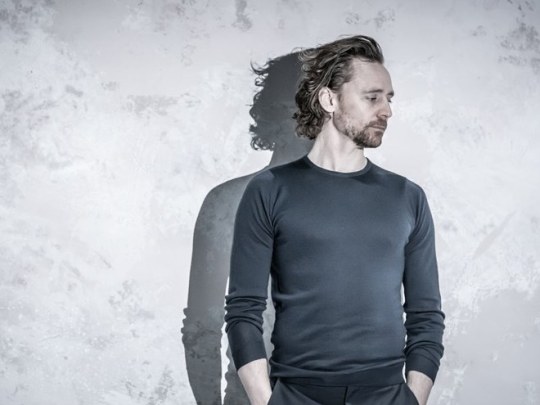
Photo: Courtesy of Marc Berner
We seem to be moving backwards through the actors’ acquaintance, not unlike the movement of the play itself, which begins with the cold dregs of an affair, and moves in a reverse chronological order through its more heated center and inception. It’s hard to talk about Betrayal without emphasizing this ostensibly experimental aspect of its construction, but as we speak, it occurs to me that this is in fact often the way that people tell the story of their relationship to one another: first comes the lunch order, then comes the January football match years ago, then the casting, and so on.
I had assumed that this version of Betrayal, when it first appeared in London, was part of a season of Pinter plays performed at The Pinter Theater in London and directed by Jamie Lloyd, but it turns out that its origin was more fortuitous. Ashton and Hiddleston had been brought in to perform a scene at a gala commemorating the playwright’s birthday, and at the conclusion, Pinter’s widow, Lady Antonia Fraser, turned to Hiddleston and said: “It was wonderful, that scene, perhaps you’d like to do the whole thing?” And then they were off—led by Lloyd, who, Hiddleston says, the actors inherited “match fit” from his season of directing the Nobel Prize–winner. Cox was tied up when he was first approached to play the third point of the tortured love triangle, but when he became available, he leapt at the opportunity. “I just googled ‘Betrayal word count,’ and then said: I’m in,” he jokes.
Continuing the backwards momentum, I leapfrog further, discovering that all three actors grew up in London: Ashton in Hackney in north London, around the corner from the house where the playwright lived most his life—“There’s no membrane between me and Harold,” she jokes—Hiddleston in central London and then Wimbledon, and Cox south of the river, in Victoria. Between the three, they’ve covered a lot of the capital’s geography, and so I ask them about the role that the city plays in Betrayal, a fourth factor in the love triangle, the characters traversing the city to reach the secret Kilburn flat where they’re conducting the affair or visiting posh Hampstead houses. Does anything get lost in translation among American audiences? “We never get a laugh with Kilburn, and we never will!” says Ashton. “It’s such a London-centric piece. Especially in our production, which is more conceptual in design, you’re asked to imagine a lot.”
But if the three performers are London-bred (and based), they have taken to their New York residencies. Hiddleston lives near Central Park, a location he chose so that he can run there every day: “The first time, I thought there was a race on—turns out, people just run in New York.” (Though he ran the London marathon once, he’s not planning on repeating it in New York—“probably wouldn’t be able to do the show afterwards,” he muses.) Cox has settled for the time being in Tribeca, where his routine is structured by preschool drop-off for his three-year-old daughter, Elsie, and weekly visits to the Russian and Turkish baths. Ashton is busy preparing for a production of a play of her own, for all the women who thought they were Mad, which has its U.S. premiere at Soho Rep later this month. She rattles off a list of shows she’s seen or would like to see—Ain’t Too Proud, Slave Play, The Inheritance, and all three chime in with exuberant appreciation of the energy of Broadway—“the density of the lights,” as Ashton puts it, “the collective energy of all the people in the vicinity.”
“I love entering the theater through a stage door that’s the door for three other theaters,” says Cox, and Hiddleston, too, seems to appreciate the on-top-of-each-other architecture of Broadway theaters. “Before the show, I open my window, and I can hear the audiences coming in for Ain’t Too Proud,” he says, “and the usher telling them to ‘step this way.’”
“I keep getting told off for being too loud when I leave,” Ashton interjects. “It’s clearly a quiet part of Phantom of the Opera. But even that’s delightful.”
With such palpable enthusiasm, and since we’ve also covered the beginning (birth, childhood) and the middle (their friendship, the play), I ask them about the (hypothetical) end: Gun to their head, if they could only do film and television or theater for the rest of their life, what would they choose?
Reluctant silence, followed by some grudging admissions: “In terms of the lifestyle,” Cox says, “I don’t think it gets better than the theater. I spend all day with my family. On a Thursday, I leave the house at 6:30. I get out of bath time.” And then there’s the iterative rewards of performing the same lines night after night: “There are changes you get to make over the course of a run, you can subtly shift your performance to make it richer.”
“We’re in a play that was written a long time ago by a legendary playwright,” says Ashton. “And we’ve brought something fresh to it. You can do that in theater.”
Hiddleston takes the longest to weigh in. “I know in my bones, I feel like a creature of the theater. But I’ve had very meaningful experiences on film sets as well. But we’re very happy.” Ashton interjects: “Rehearsing this play was one of the happiest experiences of our lives.”
The three actors are unlikely to be able to perpetuate this mutual contentment beyond the play’s run. Hiddleston is scheduled to begin work on Loki after spending the holidays back in London with his family. Ashton will be busy with the two productions through the fall, and Cox is unsure of his next project. (Dealer’s Choice, he answers quickly, when asked about his dream role: “I’m just about getting to the right age to play one of the characters.”) I suggest they find another wrenching play about love gone awry to keep them content. “It's true,” says Hiddleston. “I remember doing Othello in London, and people in the audience would be in floods of tears. And then they'd come backstage and we’d all be laughing. There’s a cognitive dissonance.”
An assistant arrives to inform them that it's time to prepare for the show. And so all three stand up and depart, more than happy to perform their nightly tragedy.
126 notes
·
View notes
Text

Zawe Ashton, Charlie Cox, and Tom Hiddleston sit down at a back table of a midtown Italian restaurant and launch into it.
“I don’t know . . .”
“I think I’ll have the . . .”
“Are you getting a starter?”
“If you get that, I’ll share it with you.”
“Whiskey at lunchtime?”
“We’re not doing this on purpose,” Hiddleston assures me, although their staccato rapport bears an uncanny similarity to dialog that Harold Pinter—in whose Betrayal the three are currently starring—might have drafted. “Sometimes, you just find yourself re-creating his rhythms.”
I hadn’t actually assumed that there was anything staged about their chatter. It seemed more like the results of months of close collaboration and a natural intimacy. The current Broadway production is a transfer of a West End show from last year; the three actors have been performing together since March, but their association began earlier than that.
In October 2018, Hiddleston and Ashton participated in an Intelligence Squared debate pitting Tolstoy against Dickens. Hiddleston dramatized the part of Levin from Anna Karenina; Ashton played Kitty. (In an odd convergence, we discover that my father also participated in the debate.) Cox’s take when he discovered that the other two actors had met on a panel debating the virtues of two 19th-century intellectual giants: “This is going to be the worst four months of my life. Can we just talk about Friends?”
But the two men also go way back. In 2011, Cox—best known for his turn as Daredevil in the Marvel franchise—took Hiddleston to an Arsenal game at Emirates Stadium, arriving to pick up the 6-foot-2 actor in a Fiat Cinquecento. “That’s smaller than a smart car,” Cox clarifies for those (like me) unfamiliar with the ’90s-era Italian hatchback. Cox is an avid Arsenal fan—he even bought a house in the north London neighborhood of Stoke Newington to be close to the stadium—but when I ask Hiddleston if he shares the same allegiance, he speaks with the measured care of someone sensing the rabid scrutiny of a million Premier League fans. “When I was younger, in the 1980s,” he says, “I supported Liverpool, but I would never elevate myself to the level of a Liverpool fan.”
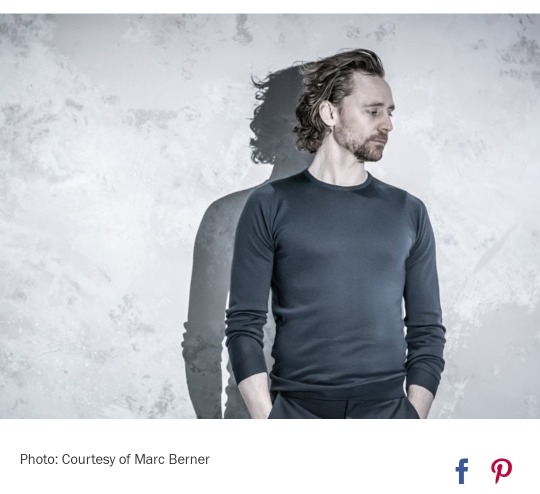
We seem to be moving backward through the actors’ acquaintance, not unlike the movement of the play itself, which begins with the cold dregs of an affair, and moves in a reverse chronological order through its more heated center and inception. It’s hard to talk about Betrayal without emphasizing this ostensibly experimental aspect of its construction, but as we speak, it occurs to me that this is in fact often the way that people tell the story of their relationship to one another: First comes the lunch order, then comes the January football match years ago, then the casting, and so on.
I had assumed that this version of Betrayal, when it first appeared in London, was part of a season of Pinter plays performed at the Harold Pinter Theater in London and directed by Jamie Lloyd, but it turns out that its origin was more fortuitous. Ashton and Hiddleston had been brought in to perform a scene at a gala commemorating the playwright’s birthday, and at the conclusion, Pinter’s widow, Lady Antonia Fraser, turned to Hiddleston and said, “It was wonderful, that scene, perhaps you’d like to do the whole thing?” And then they were off—led by Lloyd, who, Hiddleston says, the actors inherited “match fit” from his season of directing the Nobel Prize–winner. Cox was tied up when he was first approached to play the third point of the tortured love triangle, but when he became available, he leapt at the opportunity. “I just googled ‘Betrayal word count,’ and then said: I’m in,” he jokes.
Continuing the backward momentum, I leapfrog further, discovering that all three actors grew up in London: Ashton in Hackney in north London, around the corner from the house where the playwright lived most his life—“There’s no membrane between me and Harold,” she jokes—Hiddleston in central London and then Wimbledon, and Cox south of the river, in Victoria. Between the three, they have covered a lot of the capital’s geography, so I ask them about the role that the city plays in Betrayal, a fourth factor in the love triangle, the characters traversing the city to reach the secret Kilburn flat where they’re conducting the affair or visiting posh Hampstead houses. Does anything get lost in translation among American audiences? “We never get a laugh with Kilburn, and we never will!” says Ashton. “It’s such a London-centric piece. Especially in our production, which is more conceptual in design, you’re asked to imagine a lot.”
But if the three performers are London-bred (and based), they have taken to their New York residencies. Hiddleston lives near Central Park, a location he chose so that he can run there every day: “The first time, I thought there was a race on—turns out, people just run in New York.” (Though he ran the London marathon once, he’s not planning on repeating it in New York—“probably wouldn’t be able to do the show afterwards,” he muses.) Cox has settled for the time being in Tribeca, where his routine is structured by preschool drop-off for his three-year-old daughter, Elsie, and weekly visits to the Russian and Turkish baths. Ashton is busy preparing for a production of a play of her own, for all the women who thought they were Mad, which has its U.S. premiere at Soho Rep later this month. She rattles off a list of shows she’s seen or would like to see—Ain’t Too Proud, Slave Play, The Inheritance—and all three chime in with exuberant appreciation of the energy of Broadway. “The density of the lights,” as Ashton puts it, “the collective energy of all the people in the vicinity.”
“I love entering the theater through a stage door that’s the door for three other theaters,” says Cox, and Hiddleston, too, seems to appreciate the on-top-of-each-other architecture of Broadway theaters. “Before the show, I open my window, and I can hear the audiences coming in for Ain’t Too Proud,” he says, “and the usher telling them to ‘step this way.’”
“I keep getting told off for being too loud when I leave,” Ashton interjects. “It’s clearly a quiet part of The Phantom of the Opera. But even that’s delightful.”
With such palpable enthusiasm, and since we’ve also covered the beginning (birth, childhood) and the middle (their friendship, the play), I ask them about the (hypothetical) end: Gun to their head, if they could only do film and television or theater for the rest of their life, which would they choose?
Reluctant silence, followed by some grudging admissions. “In terms of the lifestyle,” Cox says, “I don’t think it gets better than the theater. I spend all day with my family. On a Thursday, I leave the house at 6:30. I get out of bath time.” And then there’s the iterative rewards of performing the same lines night after night. “There are changes you get to make over the course of a run, you can subtly shift your performance to make it richer,” he adds.
“We’re in a play that was written a long time ago by a legendary playwright,” says Ashton. “And we’ve brought something fresh to it. You can do that in theater.”
Hiddleston takes the longest to weigh in. “I know in my bones, I feel like a creature of the theater. But I’ve had very meaningful experiences on film sets as well. But we’re very happy.” Ashton interjects: “Rehearsing this play was one of the happiest experiences of our lives.”
The three actors are unlikely to be able to perpetuate this mutual contentment beyond the play’s run. Hiddleston is scheduled to begin work on Loki after spending the holidays in London with his family. Ashton will be busy with the two productions through the fall, and Cox is unsure of his next project. (Dealer’s Choice, he answers quickly, when asked about his dream role: “I’m just about getting to the right age to play one of the characters.”) I suggest they find another wrenching play about love gone awry to keep them content. “It’s true,” says Hiddleston. “I remember doing Othello in London, and people in the audience would be in floods of tears. And then they’d come backstage and we’d all be laughing. There’s a cognitive dissonance.”
An assistant arrives to inform them that it's time to prepare for the show. All three stand up and depart, more than happy to perform their nightly tragedy.
-
[ Link to the original article is in source below. ]
#Tom Hiddleston#Zawe Ashton#Charlie Cox#Betrayal Broadway#Vogue Interview#Jamie lloyd production#harold pinter play#hiddles 2019#Theatre tom#Tom Hiddleston interview#new york city
86 notes
·
View notes
Text
THE LUCIE ARNAZ SHOW
April 2, 1985
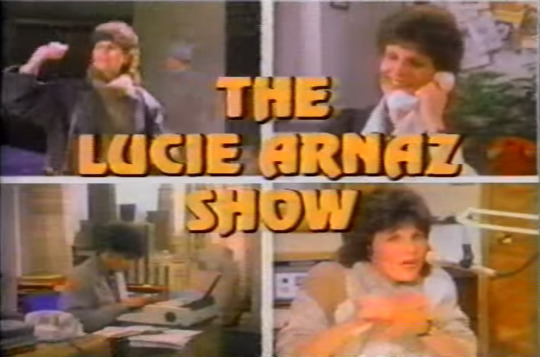
Produced by Sam Denhoff Productions and Taft Entertainment Television
Producers: Susan Seeger, Kathy Speer, Terry Grossman
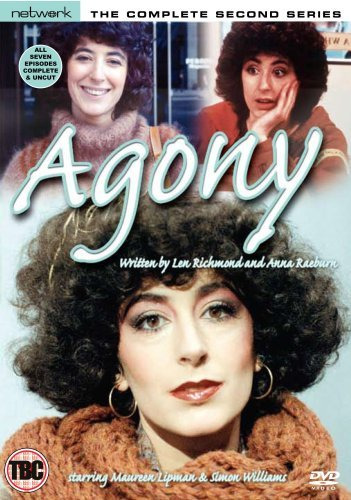
“The Lucie Arnaz Show” was based on the British television sitcom “Agony” (1979-81) starring Maureen Lipman as Dr. Jane Lucas. The original series ran for 20 episodes on LWT (London Weekend Television). Guest cast included actors like Bill Nighy, Rosalind Ayres, Miranda Richardson, and Phyllida Law.
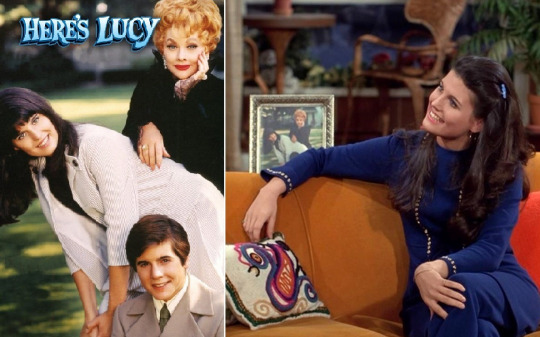
On “Here’s Lucy” there was an attempt to spin off Lucie’s character of Kim Carter for her own sitcom. In 1972, the last episode of season 4, “Kim Cuts You-Know-Who’s Apron Strings” (HL S4;E24), essentially served as the pilot for a story that had Kim moving to her own apartment, introducing a new cast of characters, one of whom was Lucy’s brother Herb, an uncle invented for the new series. CBS did not pick-up the pilot for production and Arnaz remained part of the regular cast of “Here’s Lucy” in seasons 5 and 6. While it seems unlikely that Lucille Ball was incapable of convincing CBS to pick up the new series, most likely Ball didn’t want to pressure CBS due to Vivian Vance’s sudden illness. Without Vance to fill-in as Lucy’s side-kick, Lucie was needed on “Here’s Lucy.”
After viewing the pilot CBS made a six episode commitment to the show, but recast everyone but Lucie and Karen Jablons-Alexander (Loretta). Broadway’s Chip Zien was one of the casting casualties. CBS aired all six episodes (with a two-month break after episode 4) but they declined to pick up the show for their Fall 1985 schedule.

CBS also made the executive decision to change the title from “Agony” to “The Lucie Arnaz Show,” a decision Lucie was conflicted about. While she was flattered to have her name on a show she felt good about, she felt it was not a show about Lucie Arnaz, but Jane Lucas. In England, the term ‘Agony Aunts’ applies to those who give advice, much like Dear Abby or Ann Landers in America. CBS insisted the title was too short to be quickly found and understood in the TV listings.

Unlike her mother’s sitcoms, the show was NOT filmed with three cameras in front of a studio audience, but on location in New York City with one camera.
Between the time the pilot was shot (late 1984) and production resumed after CBS gave the show the green light, Lucie Arnaz became pregnant with her third child, Kate. Production was sped up and Arnaz’s wardrobe successfully hid her pregnancy from viewers. Coincidentally, Lucille Ball herself was pregnant with Lucie when filming the pilot for “I Love Lucy” in 1951.
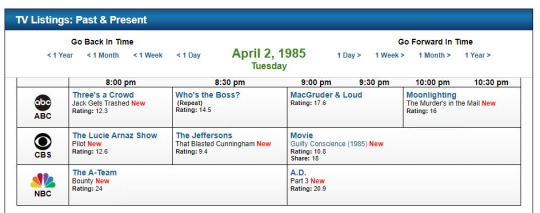
CBS picked up the show as a replacement series for “Alice”, a sitcom starring Linda Lavin that ended its 9 season run on March 19, 1985. Although Monday nights had been lucky for Lucille Ball, Lucie Arnaz was given Tuesday evenings, taking the 8:00pm time slot of “The Jeffersons” which moved to 8:30pm for its final months on the air. “The Jeffersons” aired its final episode on June 25, two weeks after the end of “The Lucie Arnaz Show,” so CBS moved it back to 8pm and aired it alongside a rerun of “Alice” at 8:30pm.
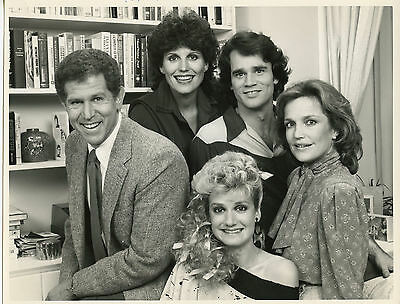
Series Premise

“Advice Radio 88 - Your spot for music and mental health in the afternoon”.
Lucie Arnaz plays Dr. Jane Lucas, a radio call-in host in New York City, who also writes a newspaper column and holds down a private practice. She has to deal with her eccentric secretary Loretta, her chauvinistic boss Jim, her immature co-host Larry, and her interfering sister Jill.
“The always ingratiating Miss Arnaz as a psychologist who not only writes an advice column, but also takes calls from listeners on her own radio program." ~ New York Times
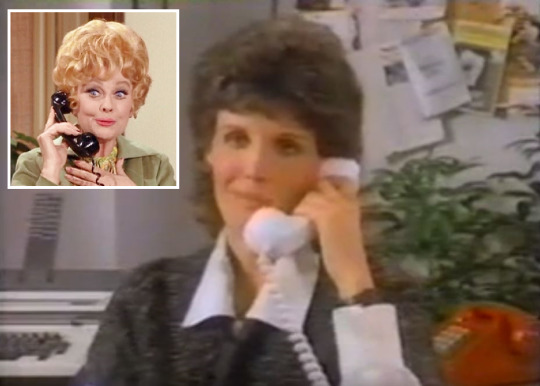
The show features Jane contending (by phone) with her over-protective mother. Viewers cannot help but think of the real-life mother Lucille Ball, who looms large over the CBS sitcom world. In fact, promo material for the series touted 'You'll Love This Lucie!’
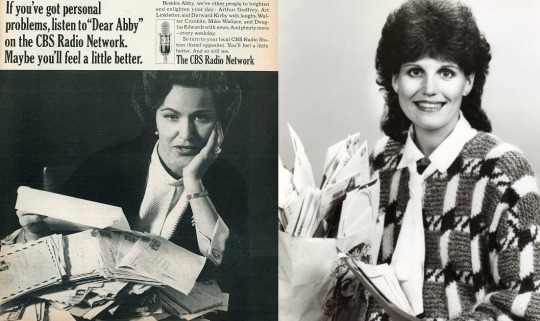
In the mid-1960s, CBS employed Abigail Van Buren to bring her “Dear Abby” advice column to the airwaves just as Dr. Jane Lucas did on Advice Radio 88′s “The Love and Lucas Show” in the mid-1980s.

CBS also recruited Lucille Ball to do a daily 15 minute talk show (as herself) titled “Let’s Talk To Lucy”. Although not strictly an advice show, Ball was known to speak her mind if she was so inclined.

In addition to her co-hosting duties at WPLE, Jane writes a column for the Daily Mirror, which was also the name of the newspaper that Lucy Ricardo read about Rosemary in “Lucy is Jealous of Girl Singer” (S1;E10).

Although it was a real-life newspaper, New York’s Daily Mirror ceased publication in 1963, making it fictional in Jane Lucas’s New York, but not Lucy Ricardo’s!

Jane lives in Apartment 4A on East 70th Street. From 1951 to May 1953, the Ricardos lived in Apartment 4A on East 68th Street.

Jane plays short-stop for the WPLE softball team. Lucy Carmichael and Viv Bagley played softball for the Danfield Volunteer Fire Department in “Lucy and Viv Play Softball” (TLS S2;E23) in 1963.
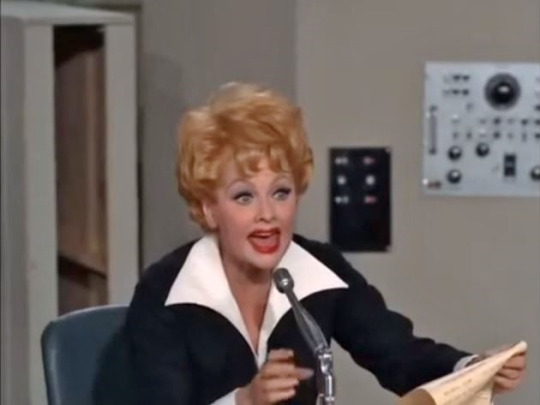
Although she played music instead of dispensing advice, Lucy Carmichael hosted a radio show in “Lucy the Disc Jockey” (TLS S3;E26) in 1965.
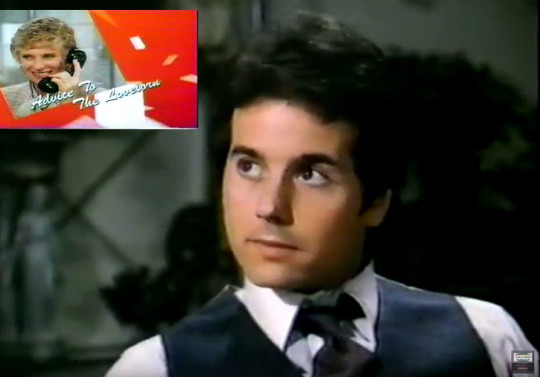
In 1981, the same year “Agony” ended in Great Britain, Desi Arnaz Jr. was in a TV movie titled “Advice to the Lovelorn” starring Chloris Leachman as an advice columnist named Maggie Dale. The telefilm served as a pilot for a series that was not picked up for production.

In 1933, the same year Lucille Ball arrived in Hollywood, United Artists released a film adaptation of the Nathaniel West novel “Miss Lonelyhearts” titled Advice to the Lovelorn (later changed to Advice to the Forlorn), about a newspaper reported demoted to writing the lonely hearts column of his newspaper. It featured “I Love Lucy” character actor Charles Lane.
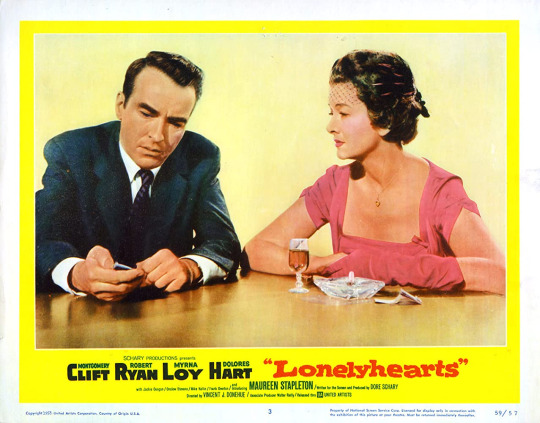
In 1958, the story was remade again, this time with Montgomery Clift as the demoted reporter writing to the heartbroken. This version was titled Lonelyhearts and was adapted by Dore Schary, and produced by Walter Reilly, both of whom were characters on “I Love Lucy”.
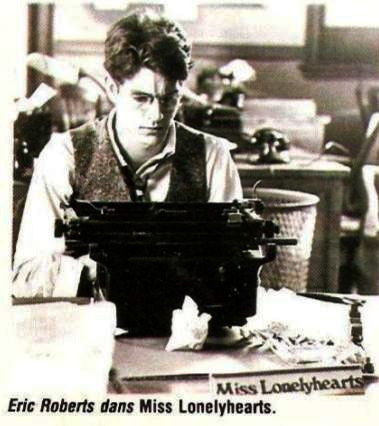
Finally, just a year before “The Lucie Arnaz Show” started filming its pilot, PBS presented a more faithful adaptation of “Miss Lonelyhearts” starring Eric Roberts as the writer.

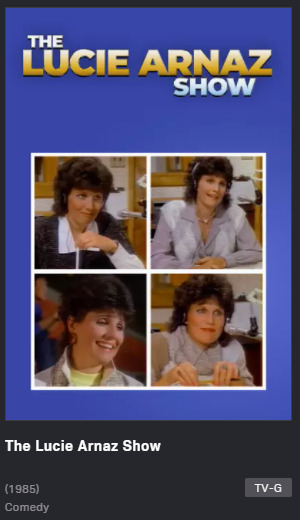
In 2020, “The Lucie Arnaz Show” began streaming on Tubi, a free TV streaming service.
“I wasn’t anxious to do a television series. I have no desire to become any more famous than I already am--and I don’t mean that egotistically. It’s just that I’ve been well known for...well, really ever since I was born, because of whose daughter I was, and I’ve never had a burning ambition to be famous. I grew up with it; I know what it’s like.” ~ Lucie Arnaz, Los Angeles Times
REGULAR CAST
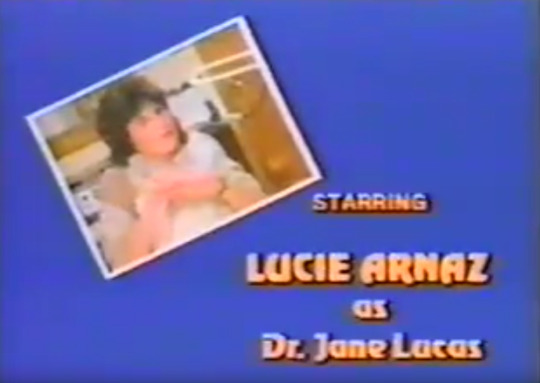
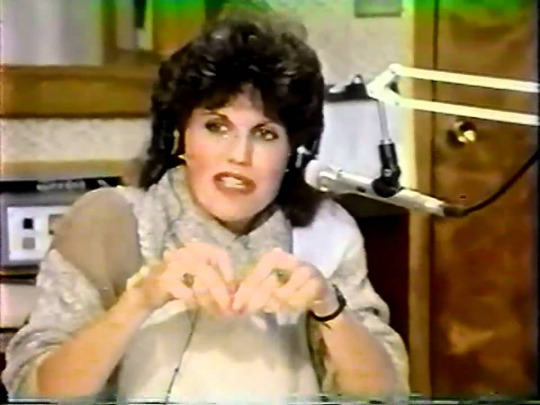
Lucie Arnaz (Dr. Jane Lucas) is the real-life daughter of Lucille Ball and Desi Arnaz. She was born in 1951 just before the premiere of “I Love Lucy.” Lucille Ball was actually pregnant during the filming of the show’s pilot. Despite rumors to the contrary, Lucie Arnaz never appeared on “I Love Lucy.” Lucie played Cynthia (as well as other characters) on “The Lucy Show.” She has been twice married, to actor Phil Vandervort (1971) and actor-writer Laurence Luckinbill (1980–present). She has three children with Luckinbill: Simon, Joseph, and Katharine. She now lives in Palm Springs, California, near the home once owned by her parents.
Jane is 31 years old and a graduate of New York University. Arnaz was actually 33 and did not attend college.


Tony Roberts (Jim Gordon, Jane’s Boss) and Lucie Arnaz were both presenters at the 1981 Tony Awards aired on CBS. Coincidentally, Roberts was on Broadway in They’re Playing Our Song, although he joined the cast after Lucie Arnaz’s departure, playing opposite Anita Gillette as Sonia Walsk. In March 1985, just prior to the airing of this sitcom, Roberts, Arnaz, and Lucille Ball were three of the “Night of 100 Stars 2″ at Radio City Music Hall. In 2018, Roberts and Arnaz were two of the many stage stars interviewed for the Rick McKay documentary Broadway: Beyond the Golden Age.
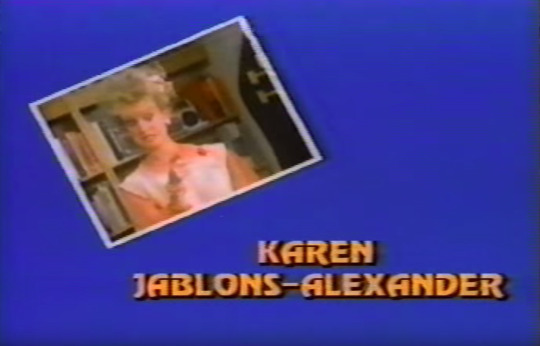
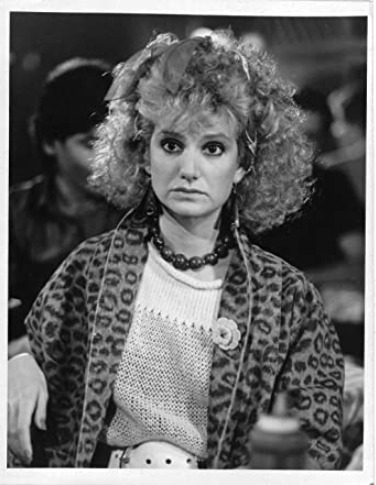
Karen Jablons-Alexander (Loretta, Jane’s Secretary) was born in 1951 in Trenton, New Jersey. Aside from this short-lived series, she only has two other screen credits, both in 1991: a day player on “General Hospital” and a background character on the film True Colors. Aside from Lucie Arnaz, Jablons-Alexander was the only actor CBS retained from the pilot episode.


Lee Bryant (Jill, Jane’s Sister) is probably best remembered as Mrs. Hammen in both Airplane! and Airplane 2: The Sequel. From 1978 to 1979 Bryant starred in TV commercials for Yuban coffee, where she played a wife who can't understand why her husband never wants to drink a second cup of her coffee. She also played Fran, ex-wife of “T.J. Hooker” (1982-83).

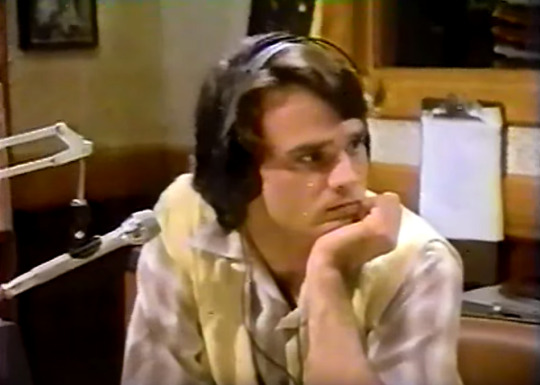
Todd Waring (Larry Love, Jane’s Co-Host) made his series TV debut with this show. He has been continually working ever since. He is married to actor Eve Gordon and has two children.
Tippy (Larry’s Invisible Dog)
Each episode began with a different handwritten note from a listener, after which, the credits begin.
EPISODES (aired in filming order)

April 2, 1985 - “The Old Boyfriend” (S1;E1)

Synopsis: Discovering that her old beau had indulged in a few lies, Dr. Lucas decides that ''after 12 years, I can put down the torch.'' At the half-hour's end, she advises a listener that ''happiness is being aware of the fact that you're not going to be happy all of the time.''
Director: Ed Feldman
Writers: Susan Seeger
Rating 12.6 ~ In its first outing, the show attracted 20% of viewers, a sliver better than “Three’s a Crowd” on ABC, but well below “The A-Team” on NBC, which got 37%.
GUEST CAST
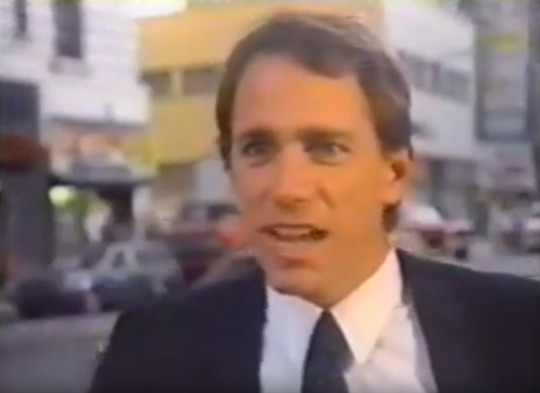
John Getz (Scott, Jane’s Old Boyfriend) is an Iowa-born theatre actor who appeared in the workshop and very first production of the musical The Robber Bridegroom. Goetz was standby for Robert Klein in Broadway’s They’re Playing Our Song starring Lucie Arnaz. One of Getz's earliest roles was as ‘Shampoo Man’ in a Johnson & Johnson Baby Shampoo commercial shot in the late 1970s. He has recently been seen on “Better Call Saul” and “Grace & Frankie.”

Gene Klavan (Mel, Engineer) was born on May 4, 1924 in Baltimore, Maryland. Klaven was a popular talk radio personality although on screen he was primarily a voice actor. He left radio in 1980 and died on April 8, 2004.
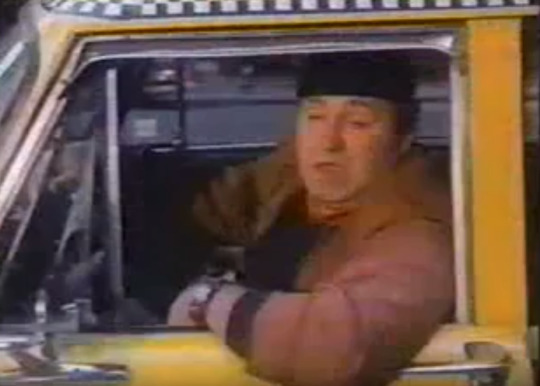
Thomas Quinn (Cab Driver) is best known as Desk Sergeant Martin on the CBS sitcom “Baker’s Dozen” (1981).
TRIVIA
555-WPLE was the advice line phone number, adhering to the old film and TV practice of using 555 as a telephone exchange.

The opening scene was filmed on location in front of the Ed Sullivan Theatre (above today), then home to the CBS sitcom “Kate & Allie”. Coincidentally, in 1987 “Kate & Allie” did an episode where Allie (Jane Curtain) dreams she is in “I Love Lucy.”

Across the street from the Ed Sullivan Theatre is the Broadway Theatre, where Anthony Quinn was performing in a revival of the 1968 musical Zorba. The revival ran from October 16, 1983 to September 2, 1984, which means the scene was shot sometime in late summer 1984.

On her office bulletin board, there is a Playbill for the musical My One and Only which opened on Broadway on May 1, 1983 and closed on March 3, 1985. It then launched a National Tour starring Sandy Duncan and Tommy Tune. Lucie Arnaz replaced Duncan on the second half of the tour. Lucie won the famed Chicago Sarah Siddons Award for her performance.
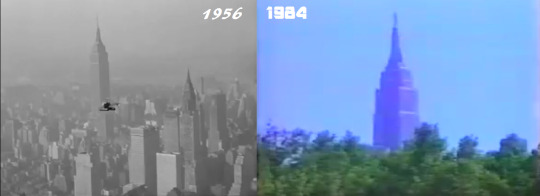
A view of the Empire State Building starts the final scene at the baseball diamond. Location footage of the Empire State Building was also seen in “Bon Voyage” (ILL S5;E13) as the helicopter carrying Lucy Ricardo toward the SS Constitution flies over Manhattan.
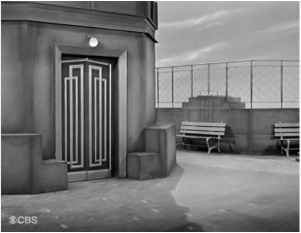
One of the most memorable episodes of “I Love Lucy” involved Lucy and Ethel (dressed as women from Mars) scaling the observation deck of the New York City landmark, although there was no establishing footage and the episode was filmed entirely in Hollywood.

The final scene of the episode takes place at a Central Park baseball field. Could this be the same field where Lucille Ball played for the Broadway Show League in 1961, batting for Wildcat with Julie Andrews (Camelot) as catcher and Joe E. Brown as ump?

April 9, 1985 - “Sisters” (S1;E2)
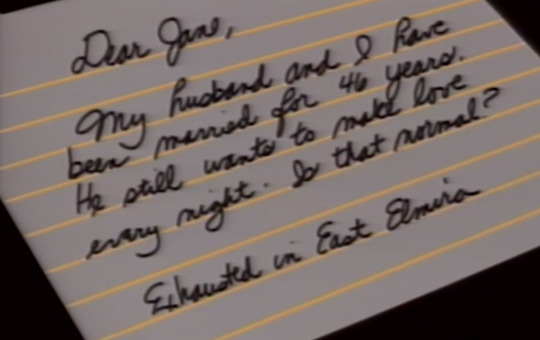
Synopsis: Jane's sister visits her for the week while her family is out of town.
Director: Ed Feldman
Writer: Susan Seeger, Kathy Speer & Terry Grossman
Rating 10.5 ~ The show fell to third place in its time period, drawing just 16% of the audience.
GUEST CAST

Melissa Joan Hart (Sarah, Jane’s Niece) was an 8 year-old from Long Island when she made her TV debut with this episode. She is best known for playing the leading roles in “Clarissa Explains It All For You” (1991-94) and “Sabrina The Teenage Witch” (1996-2003).
Sandy Schwartz (Billy, Jane’s Nephew, uncredited)
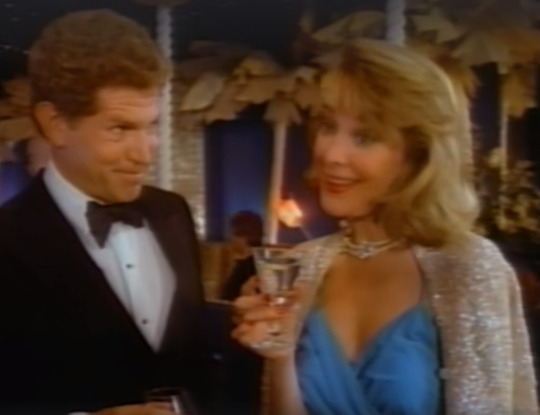
Gwyn Gilliss (Peggy Gordon, Jim’s Wife) is a NY stage actor who is best known as Lisette Grummond on over 800 episodes of the soap opera “Loving”. She was also seen on the daytime dramas “All My Children,” “As The World Turns,” “Another World,” and “Ryan’s Hope.”

Kate McKeown (Sister Bernadette)

Richard Zavaglia (Sam, Engineer)

Douglas Seale (Mr. Beverly, Jane’s Neighbor) was born in London in 1913. He was a New York stage actor seen in the original casts of The Dresser (1981) and Noises Off (1985), which earned him a Tony nomination. He was the voice of the Sultan in Aladdin (1992) and the voice of Krebbs in The Rescuers Down Under (1990). He died in 1999 at age 85.


Jane attends an event at the Club El Morocco. Lucille Ball and Desi Arnaz were just two of the many celebrities who spent evenings at the Club, known for its zebra-print banquettes.
PRESS
“Will Miss Arnaz get better scripts to showcase her decidedly appealing personality? Perhaps only Sam Denhoff, the creator and executive producer, knows for sure.” ~ New York Times, April 9, 1985

April 23, 1985 - “Good Sports” (S1;E3)
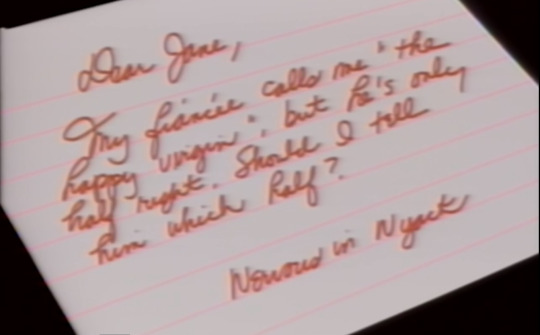
Synopsis: Jane gets a poor review from a Sports writer (Danny Aiello).
Director: Allan Baron
Writers: Kathy Speer & Terry Grossman
Rating 9.2 ~ The show was not aired the previous week due to the mini-series “Space”. This week the show was up against two repeats, and still lost its time slot.
GUEST CAST

Danny Aiello (Dick Rosetti, Sports Columnist) was nominated for an Oscar of 1989′s Do The Right Thing. In 2016, Aiello and Lucie Arnaz were both voices in the animated film Henry & Me. He appeared with Tony Roberts in the films Key Exchange (1985) and Radio Days (1987). He died in 2019 at age 86.

Dick Boccelli (Dominick, Bar Patron)
Frank Gio (Frankie, Bartender)
Richard Zavaglia (Sam, Engineer)

April 30, 1985 - “Larry Writes the Songs” (S1;E4)
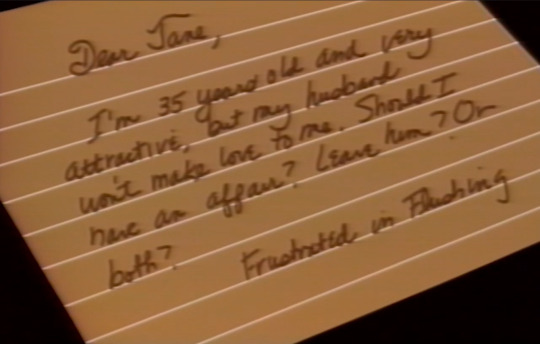
Synopsis: Jane reviews Larry's song lyrics.
Director:��Allen Baron
Writer: Bob Colleary
Rating 7.5 ~ Once again the show was up against two repeats, and still lost its time slot.
GUEST CAST

Ray DeMattis (Vitto, Mr. Gordon’s Barber) made his TV debut with this episode. He is a New York stage actor who was also seen in several TV shows featuring Bill Cosby.
Melissa Joan Hart (Sarah, Jane’s Niece)
Sandy Schwartz (Billy, Jane’s Nephew)
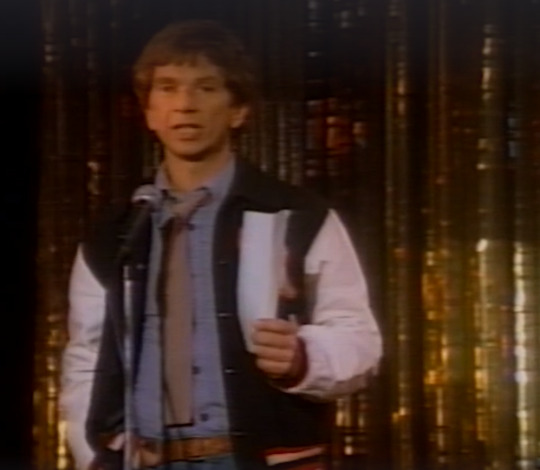
Ted Schwartz (Buzzy Cone, Emcee)

Carol Siskind (Cookie, Stand-Up Comic)
Richard Zavaglia (Sam, Engineer)
Douglas Seale (Mr. Beverly, Jane’s Neighbor)


June 4, 1985 - “Jane’s Desperate Hour” (S1;E5)
Synopsis: Jane helps a young woman with an abusive husband.
Directed by: Peter Baldwin
Written by: Len Richmond & Sam Denhoff
Rating 6.4 ~ Not only did the episode lose its time slot to reruns, it was the lowest rated show of the evening on all three networks.
GUEST CAST
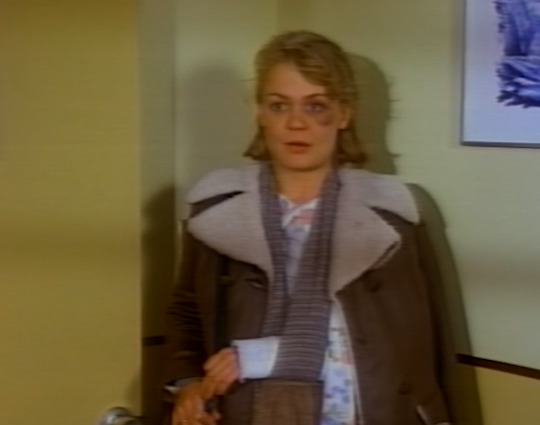
Kit LeFever (Marie, Jane’s Patient)

Raymond Baker (Ralph, Marie’s Husband)

Clarence Felder (Rocky, Jane’s Patient)

Mark Kaplan (Cop)
Richard Zavaglia (Sam, Engineer)
Douglas Seale (Mr. Beverly, Jane’s Neighbor)

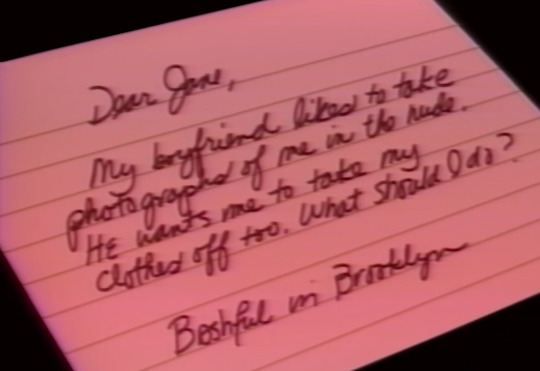
June 11, 1985 - “Birthday Blues” (S1;E6)
Synopsis: Jane puts together a 'surprise' birthday party for Mr. Gordon.
Director: Peter Baldwin
Writer: Laura Levine
Rating 6.6 ~ Once again the show was the lowest rated show of the evening across the board. Although the rating share was up 2 tenths of a point from the previous week, it was too little, too late to give confidence for a fall 1985 renewal.
GUEST CAST
Douglas Seale (Mr. Beverly, Jane’s Neighbor)
Richard Zavaglia (Sam, Engineer)
FAST FORWARD!

In 1991, Lucie Arnaz was part of another failed CBS series, “Sons & Daughters”. Lucie played Tess Hammersmith in all 7 episodes that aired. 13 episodes were filmed, but the show was canceled on March 1, 1991, with six episodes that never aired. Five years earlier Lucille Ball experienced the same disappointment when “Life With Lucy” was canceled by ABC with several episodes still un-aired.
#Lucie Arnaz#The Lucy Arnaz Show#1985#Tony Roberts#Lucille Ball#i love lucy#Desi Arnaz#Desi Arnaz Jr.#John Getz#Gene Klavan#Karen Jablons-Alexander#Todd Waring#Lee Bryant#Melissa Joan Hart#Douglas Seale#Sons & Daughters#Vivian Vance#The Lucy Show#Agony#Here's Lucy#Maureen Lipman#The Jeffersons#Alice#New York City#Ed Sullivan Theatre#Zorba#Anthony Quinn#Miss Lonelyhearts#Advice to the Lovelorn#Dear Abby
7 notes
·
View notes
Text
Andrew Davies on Les Miserables: ‘I’m rescuing it from that awful musical’
Give Andrew Davies a piece of classic literature and he will show you the erotic desires and deep-rooted anxieties that lurk beneath. Think of the passions he unleashed in the nation’s living rooms when he sent Mr Darcy for a dip in his full-blooded 1995 adaptation of Jane Austen’s Pride and Prejudice, or the consternation he provoked when he inserted a spot of incest into War and Peace in 2016.
Yet even to Davies, a new adaptation of Les Misérables – which he claims “will rescue Victor Hugo’s novel from the clutches of that awful musical with its doggerel lyrics” – posed a challenge. Perhaps the biggest question was how to represent the sexuality of its two principal characters: Jean Valjean, the prisoner who breaks his parole (played by Dominic West); and his nemesis, Javert (David Oyelowo) the policeman who hounds him until the end of his days.
Over tea in central London, Davies tells me that he was surprised to discover that, in Hugo’s 1862 novel, neither character mentions any sort of sexual experience, leaving the 82-year-old screenwriter wondering, at least in the case of Javert, whether it was indicative of a latent homosexuality.
“His obsession with Jean Valjean represents a kind of perverse, erotic love,” Davies says. He doesn’t stop there. In capturing the febrile atmosphere of post-Napoleonic France, he also shows how the innkeeper’s daughter Eponine (Erin Kellyman) expresses her desire for the earnest student Marius (Josh O’Connor).
“One of the best things Hugo does is to have Eponine tease Marius with her sexiness because he is a bit of a prig,” says Davies. “So I have introduced a scene where Marius, even though he is in love with Cosette [Valjean’s adopted daughter], has a wet dream about Eponine and feels rather guilty about it. I think it fits into the psychology of the book.”
Another problem that needed solving was Cosette, “a pretty nauseating character in the book”, whom Davies has made “strong and optimistic, rather than just an idealised figure who doesn’t add anything at all.” In the past, he has spoken about how he has turned the more saccharine depictions of 19th-century womanhood he has found on the page into women with the power “to disconcert men”, by injecting into them a little of his own mother’s character. I ask if she also makes her presence felt in Les Misérables. “I don’t think so. Was she like Madame Thénardier?” he wonders, referring to the sometimes violent innkeeper’s wife, here played by Olivia Colman. “No, that would be awful. Although she was quite keen on smacking people. The women in this book are not terribly complicated.”
I suggest that this might not sit well with modern viewers. “Well, I suppose Fantine goes on one hell of a journey,” says Davies, effecting a cod-American accent. “She develops a sort of animal ferocity and that is all because of how she has been treated.”
Davies’ childhood sounds rosy by comparison. No sooner had he started at his Cardiff grammar than he wrote a naughty poem about two of the modern language teachers, which went around the whole school in samizdat. He recites it for me:
He kissed her, she kissed him
back.
He took her knickers off and put
them in a sack.
She took his underpants and put
them in her bag.
He said: “Excusez-moi, but may I
have a shag?”
After that, his writing career settled into a slow burn. He studied English at University College London, then moved to Kenilworth, where he met his future wife, Diana Huntley (they have been married since 1960 and have two children) and began teaching literature at the Coventry College of Further Education. He wrote the odd TV play and a whole host of radio scripts – sadly, now all deleted. One 1972 play about wife swapping, Steph and the Single Life, received complaints from those who denounced it as “obscene, disgusting rubbish”.
More solid success came to Davies in the Eighties, most notably with his greatest original work, A Very Peculiar Practice, based on his experiences at Warwick. Heavy on existential gloom, it concluded with the campus being sold to a private American company, which turned it into a defence research base. Never has a series ended to quite such a peal of mirthless laughter and its extraordinary scheduling (9pm on BBC One) was, thinks Davies, a mistake.
At that point, it was hard to imagine that Davies would, a few years later, be the person to turn costume drama into sportive heritage TV. His Middlemarch came first, in 1994, and was followed 18 months later by Pride and Prejudice, one of the most popular TV series of all time. I wonder how he feels about Nina Raine’s forthcoming small-screen adaptation.
“I am very excited about it,” he says. Then he adds, “even though I wish her all the best, I hope it’s not as popular as my one. It gives me so much pleasure when people say, ‘I was feeling rotten and so I just went to bed and put on Pride and Prejudice’. People use it to get over bereavements – I’m better than a priest!”
This is not arrogance. Davies may be sharp, naughty and ironic, but he is embarrassed by anyone who makes a fuss over him. He worries that this month’s documentary about his work, Rewriting the Classics, is “a bit effusive”, and he seems too pragmatic to be affected by writerly insecurity. Is he sensitive?
“I am much less sensitive than I used to be. I remember being cast down when I had a play that went to Broadway,” he says, referring to 1980’s Rose, which starred Glenda Jackson as a schoolteacher and closed after only 68 performances. “Column after column was spent saying how terrible it was. I couldn’t eat solid food for a week.”
He had a similarly bruising experience with the film industry. A decade ago, Davies admitted that he was disappointed that his movie career had not been more buoyant (Bridget Jones’s Diary was a rare success). Talking to me now, however, he is more sanguine.
“And that’s because the writer is king in TV. In film, all the stories that people say, that they pay you a lot of money and treat you like s---, are true in my experience. I have been sacked from several movies without being told. You meet someone at a party and you say you are working on a picture and they’ll laugh and say, ‘No, you’re not.’ It’s not terribly nice.”
Two more Davies adaptations will be shown next year – of Austen’s fragment, Sanditon, and of Vikram Seth’s epic A Suitable Boy. He would love to adapt more 19th-century classics (Dickens’s Dombey and Son and Trollope’s The Barchester Chronicles are top of his list) but before that, we can look forward to his version of the Rabbit Angstrom novels by John Updike, an author whose perceived misogyny might not seem an obvious fit in today’s cultural climate.
“There are a lot of grim things said about Updike at the moment, but he is a wonderful observer of how we all behave,” says Davies. “I don’t think writers are there to be role models, they are there to say what the world is like from their point of view.”
If the number of irons he has in the fire makes it sound as though Davies is spreading himself too thinly, he displays an air of toughness despite his advancing years and a recent double hip replacement. “I don’t feel old. I had my one-year check-up yesterday and my surgeon pronounced that he was pleased with his work. My hips are good for another 10 years.”
As well as his prolific adapting, I wonder whether Davies has the desire to tell the story of his own life. “I really ought to,” he says. “I would like to start with my parents’ lives, in the early days of their marriage, because something went wrong there.” I ask why and Davies lowers his voice almost to a whisper. “I think it’s probably something to do with sex.”
Ben Lawrence, The Telegraph, 22 December 2018 (x)
2K notes
·
View notes
Text
10 LGBTQ Performers in the 1970's
The Stonewall riots were a series of spontaneous, violent demonstrations by members of the gay (LGBT) community against a police raid that began in the early morning hours of June 28, 1969, at the Stonewall Inn in the Greenwich Village neighborhood of New York City. They are widely considered to constitute the most important event leading to the gay liberation movement and the modern fight for LGBT rights in the United States. Wikipedia
What followed in the 1970’s was a rising tide of LGBTQ performers that “came out” to express their unique take on music, theater and sexual (transgender) identity. Here are 10 of those performers and a brief look at what they contributed to the movement and to our culture. Click on the image to learn more about the performer.

JAYNE COUNTY
As rock’s first openly transgender singer, Jayne Rogers (born June 13, 1947), better known by her stage name Jayne County, is an American singer, songwriter, actress and record producer whose career spans five decades. While dressed in female attire from the beginning of her career, County transitioned to female in 1979, becoming Jayne (as the above poster illustrates).
She made her first performing appearances as Wayne County in Wayne County and The Electric Chairs. In 1969 she appeared in Jackie Curtis’ play Femme Fatale. County considered Curtis a major influence on her career and persona and County is widely considered an influence on David Bowie –– County’s Queenage Baby number was the prototype for Bowie’s Rebel Rebel. Even more notable was her play, World – Birth of A Nation, which was set in a hospital and dealt with male castration –– evoking both transgender surgery and her mixed feelings about men, both gay and straight.
After seeing the play, Andy Warhol cast her in his play Pork. She went on to appear in the film The Blank Generation (1976). Back and forth between New York and London, she settled in Atlanta Georgia. In 2018, County debuted a retrospective show of visual art in the New York City gallery, Participant, Inc.
County’s life and art is considered an inspirational influence on John Cameron Mitchell’s transgender rock musical Hedwig and the Angry Inch.
JACKIE CURTIS
“Jackie Curtis is not a drag queen. Jackie is an artist. A pioneer without a frontier,” so said Andy Warhol. Andy was right. Jackie Cutis (1947-1987) was a true original. Long before he became one of the Pop master’s superstars. Curtis distinguished himself by appearing (alternately) as a James Dean-like male and a Jean Harlow-like female in Off-off Broadway plays of his own devise in which he and his friends appeared:
Glamour, Glory And Gold, co-starred Candy Darling, and Robert DeNiroin his first New York stage appearance;
Vain Victory, also starred Darling with Warhol and Jack Smith star Mario Montez;
Amerika Cleopatra featured a thin barely-known Harvey Fierstein;
Femme Fatale, starred Patti Smith, Jayne County and Penny Arcade; and
Heaven Grand In Amber Orbit toplined Holly Woodlawn. These were all makeshift, wildly tossed together affairs having little to do with plot and character but tons to do with exhibitionistic self-expression.
Outside of such Warhol films as Flesh (1968) and Women in Revolt (1972), Jackie’s most notable screen appearance was in Yugoslavia agant-gardist Dusan Makvejev’s W.R.: Mysteries of the Organism – a film about sex researcher Willhelm Reich, creator of the so-called Orgone Box. Makvejev felt Jackie presence in the film added a lot to his view of Reich’s sexual theories.
DIVINE
Born Harris Glenn Milsted in 1945, this life-affirming, overweight transvestite was re-named Divine (after the hero/heroine of Jean Genet’s Our Lady of the Flowers ) by the writer-director John Waters, who discovered her right down the block from where he lived. Through his films Waters turned a lonely overweight kid from Baltimore into one of the biggest (in every sense of the word) of all underground movie stars.
In Waters’ comedies, Pink Flamingoes, Female Trouble, Polyester and Hairspray, Divine redefined what it means to be a movie star. Waters called him The Most Beautiful Woman in The World and if you’ve seen Divine on stage of screen you’ll know why; for like his idol, Elizabeth Taylor, Divine was overwhelmingly sui generis.
While beloved for his films, Divine was a prolific LGBTQ performer on stage and in nightclubs. This above poster memorializes one of them . In this particular show — Vice— Divine appeared with many of the members of the legendary San Francisco drag troupe, The Cockettes.
Sadly, Divine (now a gay, transgender icon) died in 1988 of respiratory problems, days after the opening of his greatest acting success, Hairspray. Those lucky enough to see his club appearances also recall Divine for numbers like this —
CASSELBERRY & DUPREE
Mixing Reggae, Country and Gospel, Casselberry and Dupree are a dynamic lesbian duo who have performed with Harry Belafonte and Whoppi Goldberg, They appeared in the Oscar-nominated Art Is and the Oscar-winning The Times of Harvey Milk. The early 70s was a great time for Sapphic folk music, featured as it was at such venues as Lilith Fair. Jaqué Dupree and J. Casselberry offer a stellar example of it in: CASSELBERRYY AND DUPREE “TWO OF US”
CHARLES PIERCE
Charles Piece 1926-1999 was what might be called a female impersonator (he called himself a Male Actress) who found favor with audiences both straight and gay with his knowing impressions of Bette Davis, Mae West, Tallulah Bankhead and Carol Channing, Such impersonations were quite traditional for a comic performer of this sort. But as can be seen and heard in this clip of his rendition of Katherine Hepburn, Pierce kept pace with the blossoming LGBTQ movement with many of his zingers evidencing a keen awareness of the difference the out and proud LGBTQ movement had made in a straight-dominated world.
Headlining a production of Applause was a real tour de force for Piece as this musical version of All About Eve gave him leave to do Bette Davis (star of the original film) and Lauren Bacall (star of the musical remake) at the same time.
JUDITH ANDERSON
Stage and screen star Judith Anderson (1897-1992.) best remembered by the general public for playing the sinister lesbian “Mrs. Danvers” in Hithcock’s Rebecca (1940) and “Ann Treadwell” the socialite who’s keeping Vincent Price’s “Shelby Carpenter” in Laura The latter was quite low-key in that the character was straight, whereas “Mrs. Danvers” was a full-force lesbian.
Despite the obvious she was married twice. Her first husband was an English professor, Benjamin Harrison Lehmann. They were married in 1937 and divorced in 1939. Then, in 1946, she married theatrical producer Luther Greene. They divorced in 1951. Of these marriages Anderson said. “Neither experience was a jolly holiday.”
While Sarah Bernhardt had famously performed Hamlet in the late 19th century, few actresses have ever tried it. Taking it on at an advanced age, as Anderson did, was quite novel. Doing it when she did, put Anderson in league with the avant-garde gender-benders of the early 70s like Jackie Curtis and Holly Woodlawn.
CRAIG RUSSELL
Craig Russell, born Russell Crag Easie in 1948 in Toronto Canada, this female impersonator carved out a considerable career for himself doing such stars as Bette Davis, Tallulah Bankhead and Mae West — having come to know the last-mentioned personally as he briefly worked as her secretary in Los Angeles. Many LGBTQ performers of this genre did impressions of these stars. But there was an edginess to Russell’s work clearly influenced by the rise of the gay rights movement.
He toured widely, appearing in Las Vegas, Hollywood, San Francisco, Berlin, London, Paris, Amsterdam, Hamburg and Sydney, to the delight of a variety of audiences. But he won a special place in the hearts of the gay ones, as shown in the 1977 comedy-drama Outrageous in which he plays a character largely based on himself.
Interestingly, Russell — who always identified himself as gay — was bisexual. He fathered a daughter, Susan Allison, in 1973, and in 1982 married his closest female friend Lori Jenkins. The marriage lasted right through to the end of Russell’s life in 1990 when he died from AIDS complications.
SYLVESTER
Sylvester James Jr. (1947-1988) was born in Los Angeles, but first came to public attention when he moved to San Francisco and joined the legendary gay hippie performance troupe The Cockettes. A genuinely original singing talent Sylvester showcased a high, shimmering falsetto and a variety of styles encompassing gospel, disco and cabaret. His look was utterly androgynous. While he sometimes appeared in “drag” he most often sported ensembles suitable to both genders.
Wildly popular in San Francisco he performed solo shows at the city’s opera house. When he died from AIDS complications the entire city mourned, along with everyone else who came to know the man and his music.
STEVEN GROSSMAN
Steve Grossman (1951-1991) a gay singer-songwriter of the early 1970s whose album Caravan Tonight (1974) is distinguished as being the first album dealing with openly gay subject matter released by a major record label, Mercury Records.
He died from AIDS leaving his Joni Mitchell-inflected songs, recorded much in the style of singer-songwriter Cat Stevens, opposed to the then-current glam Bowiesque fashion of openly gay artists. Among them, “Out” is a deeply moving coming-out song directed to his Father mother and brother.
OUR GUEST AUTHOR
DAVID EHRENSTEIN
Born in 1947, David Ehrenstein has been a film critic and political commentator since 1965, writing for such publications as Film Culture, Film Quarterly, Cahiers du Cinema, and the Los Angeles Times. His books include Open Secret: Gay Hollywood 1928-2000, The Scorsese Picture: The Art and Life of Martin Scorsese and Cahiers du Cinema — Masters of Cinema: Roman Polanski .
Blog is originally published at: https://www.walterfilm.com/10-lgbtq-performers-in-the-1970s/
It is republished with permission from the author.
6 notes
·
View notes
Text
Press: Emilia Clarke interview: the Game of Thrones star on leaving Westeros behind to tackle the West End
Emilia Clarke interview: the Game of Thrones star on leaving Westeros behind to tackle the West End
Clarke, who now stars in Chekhov’s The Seagull, tells Louis Wise that the HBO fantasy series made her feel like a ‘small cog in a big machine’



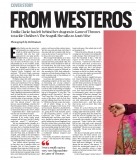

Gallery Links:
PHOTOSHOOTS & OUTTAKES > 2020 > 2020 The Sunday Times
MAGAZINES > 2020 > 2020 The Sunday Times Culture Magazine – March 15
The Times: Emilia Clarke says she views herself primarily as a stage actress, which is a little weird when you consider that she has only appeared in one play professionally before, and it was an absolute turkey. Or, as the 33-year-old star of Game of Thrones says, in her jolly British way, it was “terrible, awful, awful! Bad! That was a bad show!” The piece was Breakfast at Tiffany’s on Broadway in 2013, and it’s safe to say Clarke’s Holly Golightly did not enchant. “I’ll never forget, someone said to me after press night the only thing they liked was the cat.”
If Clarke relays this with surprising good humour, this is part temperament, part experience. For one thing, in person she is relentlessly chipper and pukka. Whereas on HBO’s mega-fantasy series Game of Thrones, she grew in stature as Daenerys Targaryen, a still, dignified stateswoman (until that end), in real life she is a goofy motormouth chatterbox, always eager to catch the joke at her expense. And she is no stranger to what we shall politely call “the mixed review”. She has known some drubbings, whether for that Broadway show, or films such as Last Christmas or Terminator Genisys, or indeed the final series of GoT, which — euphemism alert! — didn’t quite turn out the way everybody wanted.
Luckily she never reads reviews. “Because if it’s really, really good, someone will tell you. And if it’s really, really bad — some f***** will tell you.”
We are meeting today, though, at a rehearsal space in south London, because she is chucking herself back into the fray. For only her second stage appearance, Clarke is going straight into the West End, in Chekhov’s The Seagull, and taking on the prestigious role of Nina. If she is nervous, she’s handling it in the usual way, which is to say with huge blasts of good cheer.
Two clichés about meeting starsis that they are a) smaller than you thought, but b) their features are stronger than expected. Both are true of Clarke. She is tiny, proper Kylie-tiny, nicely decked out in a gauzy beige-cream knit, some fashionably frayed jeans and pointy, well-worn white cowboy boots. Yet her eyes and grin look extra big: if she stays still, she’s a dainty doll, but as soon as she moves it’s Looney Tunes. To be clear, she never stays still.
This energy feels helpful, as we have a lot to pack in. After all, Clarke’s past decade has been particularly wild. Not only did she rocket suddenly to fame in GoT (until then, her only screen credit was an episode of Doctors), she also lost her father to cancer in 2016 and, as she revealed in 2019, had suffered a sequence of brain haemorrhages in her early twenties, just as the madness of GoT was kicking off.
In private, she experienced various exhausting surgeries at the same time as becoming one of pop culture’s favourite mascots, scrutinised relentlessly on a moral, artistic and very physical level. She recalls being in hospital recovering from an operation and picking up a newspaper. “I was, like, ‘I’m going to see if I can read it,’” she says. “And I was, like, ‘Oh my God, there’s a review of the show. And, oh God, they are just talking about how fat my arse is.’”(Which is the last review she read.)
All of which brings us to the elephant, or dragon, in the room. Over seven seasons, Daenerys, aka Khaleesi, Mother of Dragons, had one hell of an arc, going from weak dynastic pawnto all-conquering queen, a kind of Catherine the Great with sub-Barbarella hair. And then, oops! Daenerys, thrilled at almost achieving her goal of ruling the Seven Kingdoms, lost the plot, turned into a psychotic dead-eyed tyrant, massacring a whole city and essentially going the full Pol Pot. She was then abruptly bumped off by her lover-cum-nephew, Jon Snow, and a worldwide fanbase stopped and went: what?
For Clarke, it had been a hard secret to keep — she had known the ending long in advance. She admits she is still processing it all.
“When the show did end, it was like coming out of a bunker. Everything felt really strange. Then obviously for it to have the backlash it did …” Did she expect it? She slows down, a rare occurrence. “I knew how I felt when I first read it, and I tried, at every turn, not to consider too much what other people might say, but I did always consider what the fans might think — because we did it for them, and they were the ones who made us successful, so … it’s just polite, isn’t it?”
It’s clear Clarke is caught between her close friendship with the series’ creators, David Benioff and DB Weiss, and her deep awareness of what most fans wanted. In fact, she first suggests that it’s the news wot done it.
“I do think that the global temperature, how much horrific news there is consistently, goes a way to explain the enormity of the fans’ outrage,” she argues. “Because people are going, finally, here’s something I can actually see and understand and get some control back over … and then when that turns, and you don’t like what they’ve done …”
Hmm. It’s a nice theory, but with Daenerys we were just denied a happy ending, right? She nods quietly. “Yeah.” So did not getting that also make her sad? She tries to explain that “as an actor” it was actually all “a gift”, but eventually the tornado of diplomacy peters out. “Yeah, I felt for her. I really felt for her. And yeah, was I annoyed that Jon Snow didn’t have to deal with something?” She lets us out an exasperated laugh. “He got away with murder — literally.”
She also eventually agrees with the critique that the final season condensed far too much in far too little time (“We could have spun it out for a little longer”) and that it could simply have had more dialogue. “It was all about the set pieces,” she agrees. “I think the sensational nature of the show was, possibly, given a huge amount of airtime because that’s what makes sense.”
Is she at least happy it ended when it did? “I mean, ‘happy’ is a funny word. It’s a strong word. Again, the show was so big. I was a small cog in a very, very, very big machine …”
What she means, though, is that she actually liked this. The show provided a routine, a family, something to fall back on every year; it also gave her experience. “I very much feel my career is something that’s happened to me, as opposed to the other way around,” she says. But she can see that being a cog has its limits, as doesforever having to cater to fans and, yes, to the press. “Doing a show so many people had opinions about doesn’t serve your creativity on any level.”
All of which explains why she is doing this Seagull with Jamie Lloyd, the director who just landed raves for his Cyrano with James McAvoy. And, yes, although she knows it’s “hilarious”, she somehow does “identify closer with theatre”. This is mostly to do with her dad, who was a theatre engineer; her mother is a vice-president in marketing for a management consultancy firm. Clarke and her brother had an idyllic-sounding childhood in Oxfordshire. Inspired by her father’s job, she always wanted to be an actress, apparently from the age of three. “I think of him whenever I’m walking through the West End,” she says. “My dad is everywhere in the theatre, 100%.”
She says this happily; I get the impression she hasn’t finished grieving, she’s just moved on to a better, celebratory phase. How would he feel about her playing Nina? “I think he would be nervous for me,” she says with a chuckle. It is, she knows, a big role: Nina, the aspiring actress whose dreams of fame are dashed, but who plugs away regardless. “I was never your Nina at drama school, that’s for sure,” says Clarke. “I wasn’t really a favourite [there], at all.”
Instead, she got parts like Jewish grannies, or “a down-and-out, pissed-off, washed-up prostitute”. But did she always want to be Nina or Juliet? “Well, of course I did. Oh my God, yeah. So I’m in no doubt there’s still some of that in me where I’m like: ‘Oh my God, guys, check it out! Finally she got there.’”
Clarke does like to cast herself as an underdog, although, thankfully, she does seem mostly to be aware that she is coming from a place of privilege. By the end of GoT she was reportedly paid $500,000 an episode. Is money a concern any more? “I am careful,” she says. “I’m a lot more careful now than I was.” She has a lovely house in north London with a bar in the garden. She can pick jobs for their artistic content first and foremost (“I want to work with an auteur!”). So yes, she knows she has it good, which is why she waited several years before revealing her brain trauma.
“I didn’t want to turn it into this celebrity sob story. I didn’t want people’s pity or ‘Oh, poor little rich girl, your successful life ain’t good enough?’” She is now happy she did it. “It’s done a huge amount of healing for me, being able to open up about it.” Her health status is “beautiful” now. “I was match-fit six weeks after the second surgery [in 2013],” she clarifies. “But mentally …”
On the other end of the spectrum, her fame has made something else hard: dating. “I am single right now …” She says with a smile. “Dating in this industry is interesting. I have a lot of funny anecdotes, a lot of stuff I can say at a fun dinner.” She was last seen in 2018 with a film director, and before that she was linked to Seth MacFarlane and James Franco. Does she mostly date fellow actors, because that’s how the industry works? “I was, and now I’m not,” she says — more smiles.
“I mean, I wouldn’t say I’ve completely sworn off them, but I do think actor relationships that are successful are few and far between, and you have to have a ton of trust.” Now and then her friends tell her to try Raya, the dating app that is supposedly for more exclusive celeb types. When she looks at it, though, “it’s just models. What am I going to do there?”
In short, everything about Clarke’s life is still monumentally weird, but she is doing a good job of pretending it’s not. After the play, she has “any one of nine projects that could go at the end of this year, and I have no idea which one will win”. A lot, she announces, are “dark”. Would she do fantasy again? “I think, if I did, it would be me having a giggle,” she says. I take this to mean her doing a send-up, a kind of Extras take on GoT, but no: “I want to do something absolutely stupid and silly, like, you know, The Avengers or whatever. Something where I got to have a giggle with mates.”
I’ve never thought of the Marvel mega-franchise as a downtime laff with pals, but that’s the level Clarke is operating on. I suppose it’s a pretty good happy ending.
The Seagull, Playhouse, London WC2, until May 30
Press: Emilia Clarke interview: the Game of Thrones star on leaving Westeros behind to tackle the West End was originally published on Enchanting Emilia Clarke | Est 2012
#emilia clarke#game of thrones#game of thrones cast#GOT cast#daenerys targaryen#me before you#terminator
2 notes
·
View notes
Link
Zawe Ashton, Charlie Cox, and Tom Hiddleston sit down at a back table of a midtown Italian restaurant and launch into it.
“I don’t know . . .” “I think I’ll have the . . .” “Are you getting a starter?” “If you get that, I’ll share it with you.” “Whiskey at lunchtime?”
“We’re not doing this on purpose,” Hiddleston assures me, although their staccato rapport bears an uncanny similarity to dialog that Harold Pinter—in whose Betrayal the three are currently starring—might have drafted. “Sometimes, you just find yourself re-creating his rhythms.”
I hadn’t actually assumed that there was anything staged about their chatter. It seemed more like the results of months of close collaboration and a natural intimacy. The current Broadway production is a transfer of a West End show from last year; the three actors have been performing together since March, but their association began earlier than that.
In October 2018, Hiddleston and Ashton participated in an Intelligence Squared debate pitting Tolstoy against Dickens. Hiddleston dramatized the part of Levin from Anna Karenina; Ashton played Kitty. (In an odd convergence, we discover that my father also participated in the debate.) Cox’s take when he discovered that the other two actors had met on a panel debating the virtues of two 19th-century intellectual giants: “This is going to be the worst four months of my life. Can we just talk about Friends?”
But the two men also go way back. In 2011, Cox—best known for his turn as Daredevil in the Marvel franchise—took Hiddleston to an Arsenal game at Emirates Stadium, arriving to pick up the 6-foot-2 actor in a Fiat Cinquecento. “That’s smaller than a smart car,” Cox clarifies for those (like me) unfamiliar with the ’90s-era Italian hatchback. Cox is an avid Arsenal fan—he even bought a house in the north London neighborhood of Stoke Newington to be close to the stadium—but when I ask Hiddleston if he shares the same allegiance, he speaks with the measured care of someone sensing the rabid scrutiny of a million Premier League fans. “When I was younger, in the 1980s,” he says, “I supported Liverpool, but I would never elevate myself to the level of a Liverpool fan.”

We seem to be moving backward through the actors’ acquaintance, not unlike the movement of the play itself, which begins with the cold dregs of an affair, and moves in a reverse chronological order through its more heated center and inception. It’s hard to talk about Betrayal without emphasizing this ostensibly experimental aspect of its construction, but as we speak, it occurs to me that this is in fact often the way that people tell the story of their relationship to one another: First comes the lunch order, then comes the January football match years ago, then the casting, and so on.
I had assumed that this version of Betrayal, when it first appeared in London, was part of a season of Pinter plays performed at the Harold Pinter Theater in London and directed by Jamie Lloyd, but it turns out that its origin was more fortuitous. Ashton and Hiddleston had been brought in to perform a scene at a gala commemorating the playwright’s birthday, and at the conclusion, Pinter’s widow, Lady Antonia Fraser, turned to Hiddleston and said, “It was wonderful, that scene, perhaps you’d like to do the whole thing?” And then they were off—led by Lloyd, who, Hiddleston says, the actors inherited “match fit” from his season of directing the Nobel Prize–winner. Cox was tied up when he was first approached to play the third point of the tortured love triangle, but when he became available, he leapt at the opportunity. “I just googled ‘Betrayal word count,’ and then said: I’m in,” he jokes.
Continuing the backward momentum, I leapfrog further, discovering that all three actors grew up in London: Ashton in Hackney in north London, around the corner from the house where the playwright lived most his life—“There’s no membrane between me and Harold,” she jokes—Hiddleston in central London and then Wimbledon, and Cox south of the river, in Victoria. Between the three, they have covered a lot of the capital’s geography, so I ask them about the role that the city plays in Betrayal, a fourth factor in the love triangle, the characters traversing the city to reach the secret Kilburn flat where they’re conducting the affair or visiting posh Hampstead houses. Does anything get lost in translation among American audiences? “We never get a laugh with Kilburn, and we never will!” says Ashton. “It’s such a London-centric piece. Especially in our production, which is more conceptual in design, you’re asked to imagine a lot.”
But if the three performers are London-bred (and based), they have taken to their New York residencies. Hiddleston lives near Central Park, a location he chose so that he can run there every day: “The first time, I thought there was a race on—turns out, people just run in New York.” (Though he ran the London marathon once, he’s not planning on repeating it in New York—“probably wouldn’t be able to do the show afterwards,” he muses.) Cox has settled for the time being in Tribeca, where his routine is structured by preschool drop-off for his three-year-old daughter, Elsie, and weekly visits to the Russian and Turkish baths. Ashton is busy preparing for a production of a play of her own, for all the women who thought they were Mad, which has its U.S. premiere at Soho Rep later this month. She rattles off a list of shows she’s seen or would like to see—Ain’t Too Proud, Slave Play, The Inheritance—and all three chime in with exuberant appreciation of the energy of Broadway. “The density of the lights,” as Ashton puts it, “the collective energy of all the people in the vicinity.”
“I love entering the theater through a stage door that’s the door for three other theaters,” says Cox, and Hiddleston, too, seems to appreciate the on-top-of-each-other architecture of Broadway theaters. “Before the show, I open my window, and I can hear the audiences coming in for Ain’t Too Proud,” he says, “and the usher telling them to ‘step this way.’”
“I keep getting told off for being too loud when I leave,” Ashton interjects. “It’s clearly a quiet part of The Phantom of the Opera. But even that’s delightful.”
With such palpable enthusiasm, and since we’ve also covered the beginning (birth, childhood) and the middle (their friendship, the play), I ask them about the (hypothetical) end: Gun to their head, if they could only do film and television or theater for the rest of their life, which would they choose?
Reluctant silence, followed by some grudging admissions. “In terms of the lifestyle,” Cox says, “I don’t think it gets better than the theater. I spend all day with my family. On a Thursday, I leave the house at 6:30. I get out of bath time.” And then there’s the iterative rewards of performing the same lines night after night. “There are changes you get to make over the course of a run, you can subtly shift your performance to make it richer,” he adds.
“We’re in a play that was written a long time ago by a legendary playwright,” says Ashton. “And we’ve brought something fresh to it. You can do that in theater.”
Hiddleston takes the longest to weigh in. “I know in my bones, I feel like a creature of the theater. But I’ve had very meaningful experiences on film sets as well. But we’re very happy.” Ashton interjects: “Rehearsing this play was one of the happiest experiences of our lives.”
The three actors are unlikely to be able to perpetuate this mutual contentment beyond the play’s run. Hiddleston is scheduled to begin work on Loki after spending the holidays in London with his family. Ashton will be busy with the two productions through the fall, and Cox is unsure of his next project. (Dealer’s Choice, he answers quickly, when asked about his dream role: “I’m just about getting to the right age to play one of the characters.”) I suggest they find another wrenching play about love gone awry to keep them content. “It’s true,” says Hiddleston. “I remember doing Othello in London, and people in the audience would be in floods of tears. And then they’d come backstage and we’d all be laughing. There’s a cognitive dissonance.”
An assistant arrives to inform them that it's time to prepare for the show. All three stand up and depart, more than happy to perform their nightly tragedy.
#tom hiddleston#betrayal broadway#betrayal#bernard b jacobs theater#broadway#theatre#harold pinter#charlie cox#zawe ashton#jamie lloyd
36 notes
·
View notes
Text
March 8, 2018, Portland, OR
They opened with "Ana Ng," followed by "Damn Good Times." During the intro of the latter, when the band was already playing but Flans was talking before the vocal kicked in (which he is quite fond of doing, particularly when the song is one of the first few of the night), he said Portland is "the only town that counts." (I knew he was joking but I was still mildly bothered by this as a Seattleite dealing with the Seattle vs. Portland rivalry).
Afterwards, Flans was referring to the people who were around the edge of the room, which was blocked off by a barrier--he said they were in East Berlin. John: "We hope you'll think about what you did." Then he said that Flans hadn't said the thing about this being "the only town that matters" at any of the other shows they've done on this tour, and Flans said it's because a big percentage of the population of Portland is rock critics. Then he said that thing that keeps making me so sad, about how they have a new album and when they say they're going to play a song from it we should pretend to be enthusiastic about it.
After "I Left My Body" (great as always), "Your Racist Friend" (still meh on this song but I do love the trumpet-party-break section with Curt), and "Hey, Mr. DJ, I Thought You Said We Had a Deal" (causing me to rock way out), John got out his contra-alto clarinet. He said it's "lower than the bass clarinet and at war with the alto clarinet."
They played "All Time What," then Flans asked John what he'd done all day. He said he'd "wandered around and dodged the raindrops--apparently it rains in this town." Flans said he did not go to the record store (there's an Everyday Music very close to the venue that he's been known to frequent when they're in town), which meant he had more money than he otherwise would've.
There was some funny banter after that. Flans said they'd gotten to stay at an actual nice hotel the night before, which was unusual for them. Then John said they were wearing crooked top hats and saying "We're gonna make it some day!" Flans said the hotel looked like "a movie set from the '30s," and they took something off a tray of food that probably cost $40. John said they were going to escape on a luggage cart disguised as luggage, and Flans compared them to Harpo Marx. Then John said that next they'd be running and their feet would make bongo sounds. So silly!
They played "Turn Around," which was SO GOOD, much better than the night before when John hadn't used his accordion due to technical difficulties.
After "Spy" and "The Mesopotamians," Flans explained that they're playing two sets, and the second set was "all hits," but they were hits by other bands. John said they're not even good bands, and Flans said they're "under the thumbs of our management," who are really mean to them.
They played "This Microphone," and then Flans said it's on their new album. He said it just came out on vinyl, and that it's a gatefold sleeve, which you can "clean your Oregon pot on."
Flans introduced "Bills, Bills, Bills" by again explaining how they'd been to the AV Club to cover a song for them. He said they first did "Tubthumping," but they weren't going to be playing that tonight because "if you sing it once you'll be singing it all week." He said he was going to be Kelly, John was going to be Beyonce ("a role he originated on Broadway"), and "the members of the band not with us will be playing the part of Michelle." So then they played it, and as always I was completely enraptured by Flans's full-on diva-ness.
They closed out the first set with "Birdhouse in Your Soul," which is a perfect set closer cos there's so much energy in the room when they play it.
Second set started the usual way, with the "Last Wave" video (which I was really tired of at this point, I never really liked it much in the first place and this was like the millionth time I'd seen it) and then "Older" to kick off Quiet Storm. I've been enjoying it on the contra-alto clarinet so much that it'll be a bit sad to (presumably) go back to it on keyboard when all this is over.
Flans pointed out the balcony was really far back and said it was "a mistake." John said it was the section for nursing mothers, and Flans said they'd combined that with the section for cigar smokers.
Flans introduced "Tippecanoe and Tyler Too" by saying it was "one of the first songs we wrote," and then confessed that they're actually vampires (explains a lot!). John said not to post that on social media, but then said that it actually wouldn't matter because they wouldn't show up.
After they played it, Flans said not enough people were taking pictures with their phones, and he was "distracted by not being distracted."
Next was MY THEME SONG, still intense and special and emotional and wonderful every single time. It makes me sad to realize that this tour may be the only time I'll get to see it, but I'm just grateful to have been able to as many times as I have.
Flans said that the electronic drums have "all the power of EDM and all the musicality of not-EDM." Then he said the last song was from John Henry, and why don't they play more songs from that album? "Because it's not very good." (As someone for whom John Henry holds the elevated status of not only the album containing my all-time favorite song but also is tied for my #1 album overall, you can imagine what my reaction to this comment was.)
They played "How Can I Sing Like a Girl?," and then the rest of the band came back on stage for "Istanbul," including the crazy jam session at the end. Afterwards, John said he needed to catch his breath and he wanted them to talk for a minute before they played the next song, which made him sound like such an old man. Flans asked us how we were enjoying the sprung dance floor, then said maybe they should talk about some prostitution scandal (I'm not sure what he was referring to) or the "useless" tariffs Trump is proposing. John said he's divesting his money from steel and investing it in "Waynecoin. It's a psychedelic cryptocurrency. You feel like you're tripping, and then all your money is gone."
Then they played "Mrs. Bluebeard." At this point I took it as a foregone conclusion that John would screw up the lyrics since he had every other time I'd seen it, and sure enough he did. For the second time at the shows I've been to, he actually acknowledged the fact that he did afterwards. His excuse was that he'd been distracted cos he'd been trying to move the microphone with his lips so he could reach the higher part of his keyboard, but the crew had tightened it too much and it hadn't moved. Flans said that what he likes is when the crew sets up his mic stand so it's too tall for him, cos he's flattered that they think he's "of higher stature" than he really is.
Next came "Particle Man," "Wicked Little Critta," and "New York City." Then Flans said the next song features Dan on acoustic guitar. Dan played a little something, and Flans said it was from Dan's collection of "unreleased b-sides" and was entitled "Ah Fuck It." John said something about it reminding him of the Motel 6 commercials, and Flans went off on a classic hilarious Flans thing with him pretending to be Tom Bodett and saying "we'll leave the bugs out for you." Then he said if you're a rock band who wants to be sued you should just say that Motel 6 has bugs.
They played "Number Three," and then Flans went back to riffing on the Motel 6 thing (in character). He said if you're coming there and you have a dog with bugs/mange you should bring them and let them pee all over the carpet.
They played "When the Lights Come On," Flans introduced the band, and then they closed out the main set with the reliably superfun "Doctor Worm."
The first encore was the same spectacular duo as almost all the other shows on this West Coast trip: "Dead" followed by "Don't Let's Start." The second encore was "Man, It's So Loud in Here" and then "Fingertips."
It was a great set and a great show! A teensy bit disappointing because the setlist was nearly exactly the same as the previous night in Seattle, and the only reason it wasn't exactly the same was that they'd removed a couple of the particularly great songs they'd played, but otherwise no complaints.
After the show, I was hanging around the stage trying to get a setlist. I didn't get one, but I did snag something else really cool: a signed drumhead from Marty! That was a first for me. I think he might've given it to me because I told him I recognized his shirt as being from Out of Print Clothing, one of my absolute favorite shops (the one with the cover of The Metamorphosis that he's been wearing a lot lately), and we chatted about that a bit. Between that and him giving me a setlist a couple of days before, I finally felt like I could accept him as a full real member of the band--I've still been thinking of him as "the new guy" all this time. I feel silly saying that as he's been in the band for going on a decade and a half now, and it has nothing whatsoever to do with Marty's skills as a drummer or kindness as a person, both of which are clearly quite high--I just don't deal with change particularly well.
JL wardrobe report: a black pullover jacket, not too exciting, except for when he pushed up the sleeves for the second half of the show (I always love seeing his arms that way, it's much more exciting than when he's just wearing a t-shirt for reasons I can't really articulate).
2 notes
·
View notes